
1
Curriculum 2024
Sixth Form
Choices
Key Information
MRS K REYNOLDS, MA (HONS)
HEAD
MR H BRIGGS, MA (HONS)
DEPUTY HEAD, ACADEMIC
MRS E CUNNINGHAM, MA (HONS)
DEPUTY HEAD, PASTORAL
MR L BENEDICT, BA (HONS)
HEAD OF SIXTH FORM
MRS K NEWMAN, BA (HONS)
DEPUTY HEAD OF SIXTH FORM
MS J TAYLOR, BSC (HONS)
IB DIPLOMA PROGRAMME CO-ORDINATOR
MR T HARDCASTLE, BSC (HONS)
HEAD OF HE
MRS M WHALLEY, BSC (HONS)
HEAD OF CAREERS
Key Dates
Wednesday 18 October 2023, 19:00–21:00
Pick Your Pathway: A Level or IB Evening
Monday 6 November 2023
Deadline for all Sixth Form applications
Monday 6 November 2023
Bursary application deadline
Monday 6 November 2023
Scholarship application deadline
Monday 6 November 2023
Art portfolio submission deadline
Wednesday 15 to Friday 17 November 2023
All Sixth Form interviews, assessments and auditions
3 Welcome 4 Our curriculum offer 5 A Level Programme 6 Enriching studies beyond A Level subjects 6 International Baccalaureate Diploma Programme 7 Entry Requirements 7 Making Your Choices 8 The UCAS Team 9 Scholarships and Bursaries (financial assistance) 10 Careers 11 The Sixth Form Library 12 ICT Provision 12 Additional Learner Support 12 Curriculum Options 13 A Level Subjects 14 Biology 15 Business Studies 16 Chemistry 17 Classical Civilisation 18 Computer Science 19 Design Technology 20 Drama & Theatre 21 Economics A 22 English 23 Fine Art 24 French 25 Geography 26 German 27 History 28 Latin 29 Mathematics 30 Music 31 Music Technology 32 Photography 33 Physical Education 34 Physics 35 Psychology 36 Religious Studies 37 Spanish 38 Enrichment 39 A Level Enrichment 40 EPQ 40 Taught Enrichment Courses 40 Dance Leaders Qualification 41 Foreign Language Leader Award 41 GDST LEAD 42 MedSoc 42 Model United Nations 42 Duke of Edinburgh Award 43 Royal High School Tripos 43 IB Subjects 44 International Baccalaureate Diploma Programme 45 English A (Literature) 46 Classical Languages (Latin) 47 French B 48 German B 49 Mandarin B 50 Language B 51 Ab Initio 52 Economics 53 Geography 54 Global Politics 55 History 56 Philosophy 57 Psychology 58 Biology 59 Chemistry 60 Computer Science 61 Physics 62 Design Technology 63 Mathematics 64 Music 65 Sport, Exercise and Health Science 66 Theatre 67 Visual Arts 68 Creativity, Activity and Service 69 The Extended Essay 70 Theory of Knowledge 71 Core Sixth Form Subjects 72 Sport and Physical Education 72 RHSE 72 Leadership Opportunities 73 Results 74 A Level and IB Results 2023 75 Destination of Leavers 2023 76 Contents
Introduction from the Head of Sixth Form
Welcome
Sixth Form at Royal High School is a unique place of enrichment, discovery, diversity and intellectual freedom. Arriving here is a new beginning and a real change in your educational life – a time of growing independence, autonomy and maturity.
You will quickly discover what makes it so exciting – and so different from your earlier experiences of school. Firstly, the lessons have a new emphasis, with more importance placed on academic curiosity and independent research. Your relationships with your teachers will feel richer, and the classroom experience will be embedded with discussion and debate; a space for you to offer your own perspective.
The GDST’s research clearly reveals the extent to which students thrive in an all-girl Sixth Form. Against girls in a co-educational setting, our girls are more confident (and actually grow in confidence during a stage when peers in co-ed settings typically drop in self-confidence), more positive about their future, more sure in their decisions, more comfortable in taking risks, more empathetic in embracing the views of others, and more likely to feel fulfilled after school.
Class sizes are smaller and there will be periods each day when you are not in lessons and are able to prioritise how to best use your time. You may choose to study over a coffee in the Sixth Form Café or to use the silent space of the Sixth Form library (or catch up with reading on a sofa in the common room).
A good Sixth Form should be a fun and inspiring place in which to spend your time. You’ll feel challenged on a regular basis, feeding off the atmosphere of common purpose and academic endeavour. It is a place where you can feel your mind being stretched and your sense of ambition honed. Academically, you will grow in confidence and in terms of pastoral support, our Sixth Form is second to none.
The tutor system is based on individualised one-to-one tutorials where your tutor can offer support and guidance when you face difficulties. The ethos and culture here is designed to support you in every possible way so that you are able to flourish in whatever you attempt.
Outside lessons, opportunities abound. If you are interested in working with younger students, we have a mentoring programme. If you are keen on public speaking, take part in the MUN. If you want to cut your teeth in business, join the LEAD programme. If leadership interests you, apply to be a Prefect or a Mentor – or Head Girl!
As for subject-based clubs, there are many of them throughout the school, from MedSoc if you are interested in pursuing a degree in medicine, to Culture Club where you can interrogate anything from the feminism of ‘Barbie’ to the madness of nihilism. Many students set up and run their own clubs. And if you really wish to make your mark, join the Ball Committee and help organise the spectacular May Ball which takes place in the summer term.
We are specialists in girls-only contemporary education and this expertise is nowhere more significant that in the Sixth Form where that knowledge has a fundamental impact on what we do. We are extraordinarily blessed to be part of the GDST, with its peerless alumna network and many professional pathways, whether you want to be an engineer or an artist.
I am passionate about the quality of our offering. We set high expectations and help students practically reach them, academically and personally. The IB diploma remains an essential attraction of our Sixth Form offering; and I believe even our A Level students benefit from its presence in the wider curriculum, especially given our global status as a leading IB school. The international lens of the IB curriculum, alongside our boarding community, gives RHSB a unique position in Bath and beyond.
Above all, Royal High Sixth Form is a place to grow and develop, academically, emotionally and socially, and where the students who are here are at the centre of everything we do. I look forward to seeing you in the Sixth Form!
Mr L Benedict Head of Sixth Form
4
Our curriculum offer
At Royal High School Bath we are proud to offer two distinct pathways at Sixth Form; A Levels and the IB Diploma Programme. This means that all our students can pick a combination of subjects that enable them to develop their academic curiosity, their learning skills and a portfolio of qualifications that will allow them to demonstrate depth of learning as they move to the next stage of their lives.
Our A Level programme allows students to focus on their three main subjects with additional enrichment subjects (some awarded with standalone qualifications), the Tripos and the EPQ (Extended Project Qualification), helping to build a broader academic profile.
The IB Diploma is a highly regarded educational programme that allows students to take a broad and balanced selection of subjects across 6 disciplines and is united by the Core of the diploma: Theory of Knowledge, CAS (Creativity, Activity, Service) and the Extended Essay. There is a greater focus on coursework and a wider variety of forms of assessment than in the A Level programme. At Royal High School Bath both routes have enabled students to achieve exceptional results and secure places on highly competitive university courses. The information in this booklet will provide you with details about both routes, and we look forward to discussing which pathway and subject combinations will enable you to thrive in the Sixth Form and equip you with skills for the future.
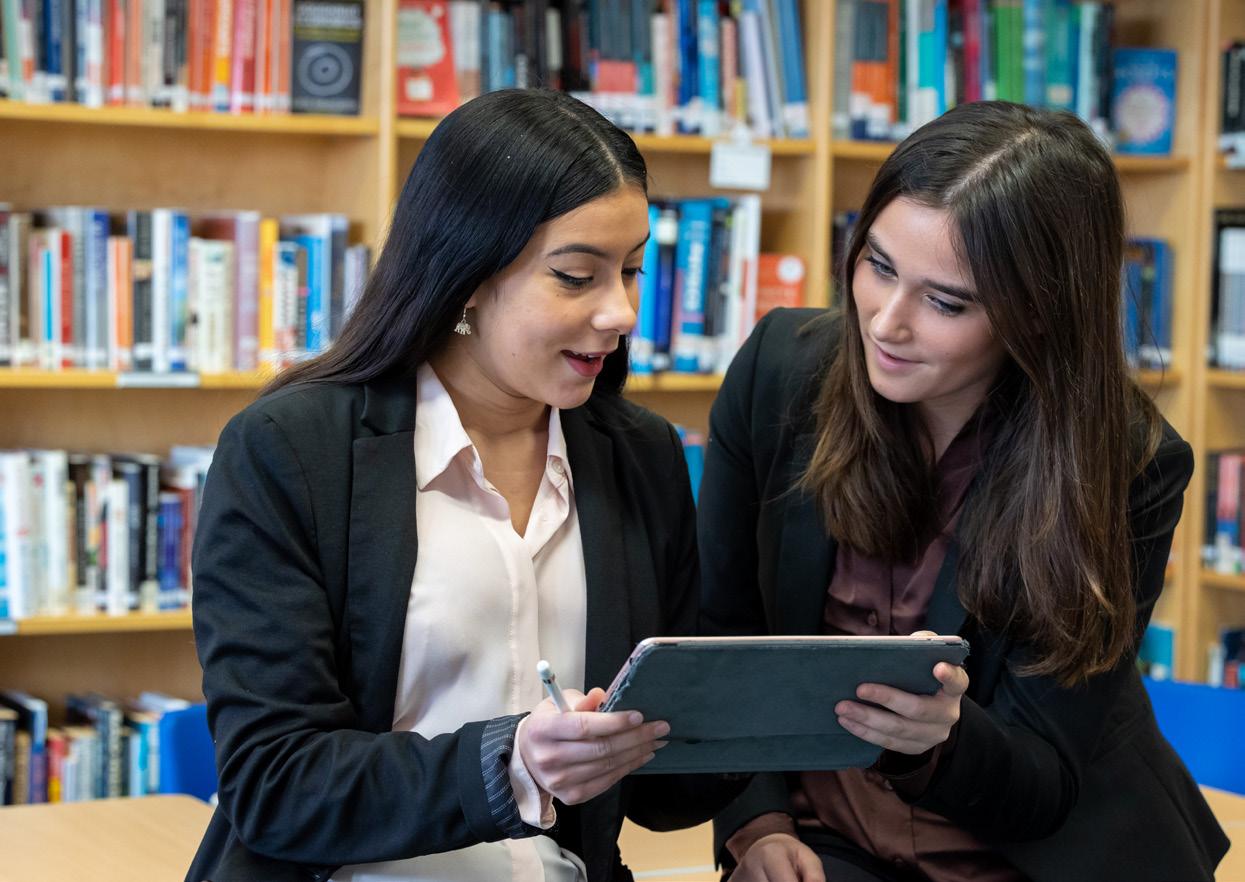
Subject Structure
A Level Programme
The curriculum model for A Levels at Royal High School Bath allows students to focus in depth on the subjects they wish to take whilst providing additional opportunities to develop wider interests and skills that are essential in creating rounded and successful undergraduates and professionals. In most cases it is advisable to take three full A Level courses. This is because all universities, including Oxbridge and Russell Group universities, make their standard offer on the basis of grades in three A Levels.
Oxford University, for example, has stated “We advise candidates not to spread themselves too thinly across too many subjects, where they may risk dropping a grade or two in their results. Our offers are made on the basis of exam grades rather than UCAS Tariff points, so three A*/A grades would be sufficient to meet most conditional offers, but two A*s and two Bs would not.”
There is an exception to this rule in the case of a student opting to take Further Maths.
We do recognise, however, that students of exceptional ability may desire to take up the challenge of a fourth full A Level. If this is the case, please contact the Head of Sixth or a member of the curriculum team. Our Standard Level IB enrichment subjects will provide ample evidence of your academic strengths for university.
The curriculum model for A Levels at the Royal High is based on ten hours of lessons per fortnight per subject. This generous allocation is designed to give students the scope to study each of their subjects in depth while also having the time to develop an independent, exploratory approach by reading widely and researching around their subjects.
To complement academic studies, all students follow a programme of lessons in RHSE ‘Education for Life’, UCAS preparation, study skills, and sport.
Leading on from the study skills course is the opportunity for students to complete the Extended Project Qualification (EPQ). Students will also have the option to choose an additional two-year qualification as a way of enriching their experience and educational portfolio for university applications.
Grades are awarded from and A* to E for full A Levels.
Enriching studies beyond A Level subjects
Our aim is to offer our students the richest and most varied educational experience we can. To this end, in addition to their A Level subjects, students may study an Enrichment subject from Group 6 of the IB programme. This is worth up to 28 UCAS points (more than an AS level) which is taught for five hours per fortnight. These qualifications enhance the academic profiles of the students who take them. These courses will run subject to student interest. Initially we will ask for expressions of interest and work up the timetable in tandem with the IB choices. Additionally, we offer a suite of qualifications and opportunities to help enrich Sixth Form life which students may wish to fully commit to as well as or as an alternative to an enrichment subject. This includes the London School of Economics Leadership and Enterprise Advanced Diploma, a qualification unique to GDST schools.
IB Standard Level subjects also available to A Level students include:
— IB Language B Qualifications e.g. French, Spanish, German (IB SL)
— IB Humanities subjects: Global Politics, Philosophy, Economics
— An IB Science e.g. Chemistry
— Music (IBSL)
— Visual Arts (IBSL)
— Theatre Arts (IBSL)
Alternative Enrichment Qualifications and Opportunities:
— London School of Economics Leadership and Enterprise Advanced Diploma
— Gold Duke of Edinburgh Award
— Foreign Language Leaders Qualification
— BMat and UCAT preparation (MedSoc)
— Dance Leaders Qualification
— Model United Nations
— Life Skills
Enrichment activities are an essential part of the RHSB Tripos Award.
6
International Baccalaureate Diploma Programme
The IB Diploma Programme (IBDP) requires students to choose one subject from six subject areas, three to be studied at Higher Level and three at Standard Level. Higher Level subjects are taught for seven hours and 45 minutes per fortnight whilst Standard Level have five hours each fortnight.
Lesson time is also allocated to two of the three Core requirements of the programme: Theory of Knowledge (TOK) and Creativity, Activity and Service (CAS). The third Core requirement, an Extended Essay (EE) of 4000 words, is launched in the Autumn term of the Lower Sixth and completed independently in conjunction with a supervisor: each student chooses their own subject and topic.
All courses are taught over two years. Coursework and oral assessment are an integral part of the programme, and the final external examinations are taken in May of the second year. The IB Diploma Programme is graded out of 45 points. A possible 7 points are available for each subject and 3 extra points can be gained through TOK and the Extended Essay. A minimum of 24 points, of which 12 points must be in the Higher Level subjects, is necessary to pass the IBDP. Students who do not achieve this receive a certificate in each subject.
All subjects are offered at Standard Level (SL) and Higher Level (HL) unless otherwise stated.
Entry Requirements
If you are not already a student of Royal High School Bath, and are considering joining the Sixth Form, the first step should be an informal visit to see our Sixth Form facilities. You will also meet the Head, Head of Sixth Form and other members of staff, as well as being able to talk to some of our current Sixth Form students. Please contact the Registrar, Emma Symonds admissions@rhsb.gdst.net, or telephone, 01225 313877.
Entry is dependent on a minimum of six GCSEs at grades 9-6. Candidates are also expected to achieve grades 9-6 in the subjects they wish to study at A Level or at Higher Level in the International Baccalaureate Diploma. In addition, students are required to achieve at least a grade 4 in Maths and English Language GCSE. For some subjects, a grade 6 or above in a related discipline is recommended. For example, Psychology would require grade 6 or above in English, Mathematics and Science.
In some subjects, we would recommend continuing to study them only if a grade 7 or higher is achieved at GCSE. More advice will be given about this following results. Students wishing to take Music A Level also need to have Associated Board Grade 4 or above in an instrument or singing.
Offers are normally made on the basis of predicted grades and school reports, but entrance assessments may be required in some cases. Some students will be required to take papers to assess their ability in English, Maths and option subjects.
7
Making Your Choices
RHSB students will be asked to submit their choices via SIMS options by Wednesday 30 November. New Students will do this in consultation with Registrar and Academic Team. The option blocks will then be created from the subject combinations given in order to satisfy the maximum number of preferences. Shortly after this we will write to you to request final confirmation of your subject choices. We will do our best to fit all choices but occasionally this might not be possible. If students re-think their options after the timetable is made, then changes can only be made within the existing option blocks and to courses which are not full – in any case please check this with the curriculum team. Please don’t hesitate to talk to us about this and ask our advice.
Choosing your Subjects – A Level
There are certain university courses and career paths (e.g. Medicine) which require specific qualifications as a condition of entry. Think carefully about the area(s) you are interested in pursuing and ensure that:
— Subject choices required in this area match your academic strengths
— Appropriate subjects are made for this ambition. We encourage students to discuss their ambitions with Mrs Whalley (Head of Careers) and Mr Hardcastle (Head of Higher Education) to take advantage of their many years of experience in this area.
You will receive more advice about this in your academic interview with a senior member of staff in the Autumn term. Choose subjects you enjoy. Enjoyment is very important due to the depth of study required.
Choosing Subjects – IB Diploma Programme
The principle of breadth is built into the IB Diploma Programme but students still need to think carefully about the combinations of subjects that are chosen from each group.
In particular, students need to think carefully about their choice of subject from Group 6, The Arts and Electives. Would-be medical students will need to opt for a second science.
For university courses involving Mathematics, including Physics, Architecture, Computer Science, and certain Engineering courses, one of the HL Maths courses may be required.
Subjects with a very low uptake of students may only run at either IB or A Level, not both.
If you have further questions regarding A Level or IB choices please contact me –h.briggs@rhsb.gdst.net.
Mr H Briggs Deputy Head, Academic
8
The UCAS Team
How we support you
At the RHSB Sixth Form we have an experienced Higher Education, Careers and Tutor team to support and guide you through the UCAS application procedure. We are confident that we are able to offer the best possible help to ensure you gain the university place for which you are best suited.
The reason our system works so well is because we start early! In Year 12 we work with the careers department to start preparing our students for applying for their next steps. In the Spring Term, we launch the process with our ‘Next Steps Evening’ to support both students and parents in navigating the choices ahead.
In the Summer Term we focus on helping you to decide where to apply and guide you through the process. We encourage students to attend some University open days and we make time available for Work Experience.
We hold two Higher Education Preparation days which ensure that every student has specialist help and guidance:
— Advice on writing the Personal Statement and how to apply to UCAS online.
— Specialist staff give advice to those contemplating Medicine or Veterinary courses.
— A seminar session and individual advice for those considering Oxbridge.
— Personal Statements are started and our UCAS and Tutor teams are on hand to offer individual guidance.
Advice is tailored to the needs of IB students to ensure a clear understanding of UCAS tariffs.
Each student is allocated a member of staff to act as a Personal Statement Mentor; usually a subject specialist who knows the student well, or a member of staff with experience and expertise in particular applications. Tutors offer guidance at all stages and collate staff comments to compile the school reference.
We aim to complete all Personal Statements and to have the bulk of the reference written in the Summer Term. Students register on the UCAS website and start to input their details, ensuring a speedy application process in the autumn. Students will then be able to concentrate on their A Level or IB2 studies once they return after the summer holiday.
Autumn Term – Year 13 –applying through UCAS
— After receiving their internal exam grades, students complete their personal statements, with their tutors’ full support.
— References are written, and tutors discuss these with the students at one-to-one meetings. References are based on reports from subject staff and others: e.g. Housemistresses, PE staff, leaders of CAS activities, so that the reference is as full as possible.
— Students have individual help from the UCAS team during the application process.
— Anyone likely to face an interview is given specialist training in a small-group workshop session.
— Medical, Dental and Veterinary applicants, along with Oxbridge applicants, have individual help from specialist members of staff.
— As a result of our early deadlines for the whole process, students’ applications will reach admissions tutors early – offers are often made early for the more popular courses, and with the enormous increase in the number of applicants expected each year this could be a real advantage.
— Mock interviews are arranged for students before the main university interviews begin so that students feel thoroughly prepared.
— The universities make their decisions. The UCAS team is available throughout the year to offer guidance about accepting offers.
Should there be any ‘hiccup’ over examination results in July (IB Diploma) or August (A Level) the same team is on hand to provide support and advice.
Our UCAS procedure ensures that every student gets the best possible individual help, drawing on the talents of the whole staff. We are proud of the help we offer students – it represents a genuine partnership between the student, tutors and teachers. We value the parent’s input as well.
Good luck with your application!
Mr T Hardcastle Head of HE
9
Scholarships and Bursaries (financial assistance)
Academic Scholarships in Year 12
For entry into Year 12, both internal and external students may apply for one of three scholarships: the A Level STEM, A Level Arts, or the IB Scholarship. These mirror the opportunity to specialise at A Level and keep a broad range of subjects at IB.
Academic Scholarship: STEM or Arts (for those taking A Levels)
These awards recognise a student’s aptitude for STEM (Science, Technology, Engineering, Maths), and the Arts and Humanities (English, History, Classics, Modern and Ancient Languages, Religion and Philosophy, and Geography.) Students take examinations in two subjects from either the STEM or the Arts lists of subjects.
Academic Scholarship: IB Scholarship (for those taking the IB Diploma)
Owing to the holistic nature of the IB Diploma, students may take examinations in any two subjects of their own choice that they wish to take at Higher Level.
GDST Sixth Form Scholarship applications for September 2024 entry must be submitted by Monday 6 November 2023. Students are required to submit a personal statement to support their application. Art and DT portfolios must be submitted by Monday 6 November 2023.
A committee chaired by the Head and consisting of the Head of Sixth Form, Head of Academic Extension and Deputy Head (Academic), will assess candidates’ performance across the papers and at interview. External candidates’ results will be considered alongside a school reference. Candidates will be invited to attend interviews, auditions and assessments between Wednesday 15 and Friday 17 November 2023. More information can be found in our publication Scholarships and Awards which is available to view on our website.
Specialist Scholarships in Art, Dance, DT, Drama, Music and Sport
Successful candidates for specialist awards will be expected to make a commitment to their chosen subject area throughout their Sixth Form career and to follow the subject through both A Level or IB Diploma, with the exception of Dance. They will be expected to take part in concerts, productions and other extra curricular activities appropriate to their subject area.
GDST financial support (bursaries)
The GDST has an extensive scheme of meanstested financial assistance awards. If you would like to discuss financial assistance please contact our Registrar, Miss Emma Symonds: e.symonds@rhsb. gdst.net. Please note that bursary applications must be completed by Monday 6 November 2023; do allow plenty of time to submit any accompanying evidence that GDST may request.
10
Careers
As a Sixth Form student at RHSB, you will have access to a tailored Careers Education and Guidance programme. Our aim is to address the needs of every girl, and support them to make bold, informed career choices.
Personal Guidance
Unique in Bath, we offer individual careers advice three days per week, every week of the school year. The Head of Careers, Melanie Whalley, is a Level 6 qualified Careers Adviser, and provides individualised careers advice sessions for students as frequently as they wish throughout their time in the Sixth Form. Sessions can cover careers related to their skills and interests, help in finding work experience or support in starting their university research. Parents are also able to meet with the Careers Adviser—particularly helpful in the ever-evolving landscape of Post-18 options. Understanding degree apprenticeships, school leaver programs and help with planning a gap year are also topics that are frequently requested.
Melanie has a degree in Chemical Engineering from Princeton University and worked in finance for over 12 years, both in London and overseas, before retraining as a Careers Adviser.
Resources
A significant benefit of being a part of the GDST is the access to GDST-wide events and opportunities on offer, designed to support and develop students as they move through Sixth Form. Events are held throughout the year, some examples of recent sessions: Applying to American universities, Q&A panels featuring alumnae in Law, and a ‘Learn to Network’ evening with local businesswomen.
The GDST’s CareerStart programme partners with a range of organisations, including the Bright Network and London School of Economics, to organise events that will give students an insight into the working world.


Sixth Formers have access to Rungway, a mentoring app designed for the GDST. This allows our Sixth Form students to connect with alumni mentors and ask questions about university, career paths and different industries.
Our 70,000 strong network of GDST alumnae supports students with unrivalled personal and professional connections.
GDST Life: The alumnae website that gives our 70,000-strong network of GDST alumnae access to unrivalled personal and professional connections, new networking opportunities, mentoring support, events, news and resources, groups and societies.
We are constantly building our network of professionals, from our alumnae, to our parent body, our staff, and our contacts, to give our students access to information and experiences related to careers.
Work Experience
Sixth formers are encouraged to make use of personal and GDST networks to arrange work experience to help inform career choices, and in preparation for Higher Education. We are available to provide support with this, and we can also help you to navigate the growing number of ‘virtual’ work experience programmes now available.
Ms Melanie Whalley Head of Careers
GDST Leadership and Enterprise Advanced Diploma (LEAD): LEAD is an innovative Leadership and Enterprise programme designed to enable our sixth form students to develop the skills to be future leaders and entrepreneurs. LEAD is delivered in partnership with and is accredited by LSE Generate, the enterprise arm of London School of Economics. The LEAD programme consists of weekly in-school taught sessions, online sessions with other GDST teams, and in-person “business boot camps” at LSE.
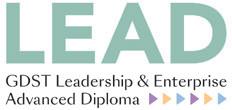
11
The Sixth Form library
The Sixth Form Library is located on the first floor of the Winfield Centre. Providing a quiet learning environment for independent study, it houses a comprehensive collection of over 4000 subject specific books that have been carefully selected to support IB and A-level courses. Students are able to access the latest research via a variety of periodicals and specialist journals which are available in both
printed and electronic formats. The Sixth Form Library also offers a range of classic, international and contemporary fiction and non-fiction designed to encourage further reading for interest and academic engagement. Our experienced and highly qualified library team offer advice and recommendations as well as leading sessions about information and research skills.
We are proud to have been awarded Microsoft Showcase School status, as one of only 80 schools in the UK. We provide future ready skills for students by embedding the use of technology in the classroom.
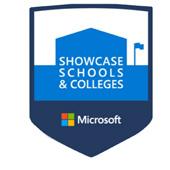
All Sixth Form students are required to bring a laptop or similar device for the duration of their studies at the Royal High School. This can link wirelessly to the school-wide network.
We have interactive teaching screens in a number of classrooms which encourages collaboration
and active involvement in lessons. Files can be saved to Microsoft Office 365, which automatically backs up files so that important coursework should not be lost should the student’s device become accidentally lost or damaged.
Students access a secure password protected Hub where emails and files can be accessed from any computer with internet access.
Additional learner support
The main aim of providing Learning Support is to nurture confidence and resilience in our students to enable them to develop as learners and as people. We recognise that some students may need help at certain times to achieve their full potential, and the Learning Support department provides a friendly and supportive environment. We celebrate individual strengths while supporting students address any challenges.
Some students require short-term help to develop and improve their study skills, whilst others may have a specific learning difference and need to follow a programme tailored to the needs of the individual.
On entry to school in Year 12, all students are screened which enables us to recognise strengths and weaknesses. Both academic and pastoral teams meet regularly to monitor progress of all
students and raise any student of concern with the Learning Support Department.
If additional specialist support is required, the student might attend for a short course of study skills or access longer term support with a group. Certain students may wish to access individual and bespoke 1:1 support, for which there is a charge. If you are interested in this level of support, please let us know.
The need for exam access arrangements is assessed during Year 12 as well as feedback from internal exams and if eligible, evidence of need will be collected to make an application during the A level and IB courses.
By having high expectations and developing positive working relationships, we aim to maximise opportunities and success for all our students with additional needs.
12
ICT provision
Curriculum Options
A LEVEL
Choose any three subjects
Biology
Business Studies
Chemistry
Classical Civilisation
Computer Science
Design Technology
Drama and Theatre
Economics A (Pure Economics)
English
Fine Art
French
Further Mathematics
Geography
German History
Latin Mathematics
Music
Music Technology
Photography Physics
Physical Education
Psychology
Religious Studies (Philosophy and Ethics)
Spanish Theatre Studies
IB
Choose one subject from each column, three at SL, three at HL
Group 1
Group 4
Language A: English Literature Biology
Chemistry
Computer Science
Physics
Design Technology
Sports, Exercise and Health Science
Group 2
French B
German B
Latin B
Mandarin B
Spanish B
Language B Ab Initio
Group 3
Economics
Geography
Global Politics SL
History
Philosophy
Psychology
Group 5
Maths:
Applications and Interpretation
HL/SL
Maths:
Analysis and Approaches
HL/SL
Group 6
Music
Theatre
Visual Arts
Elective (Second subject from Group 2, 3 or 4)
13
A Level Subjects

Course Outline
Biology is at the forefront of some of the biggest challenges facing us in the 21st century, from conservation of endangered species to overcoming antibiotic resistance and developing methods that can be used to increase crop growth for an evergrowing population. Biology allows you to question and challenge these issues in order to create a more sustainable and healthy future.
Theoretical knowledge and the focus on current practical techniques will support your development as a future scientist. You will learn about the core concepts of biology and about the impact of biological research and how it links to everyday life. You will learn to apply your knowledge, investigate and solve problems in a range of contexts.
At A level the students follow the AQA A level Biology specification, which is composed of 8 key topics and 12 core practicals which are completed in class and assessed over the two year course.
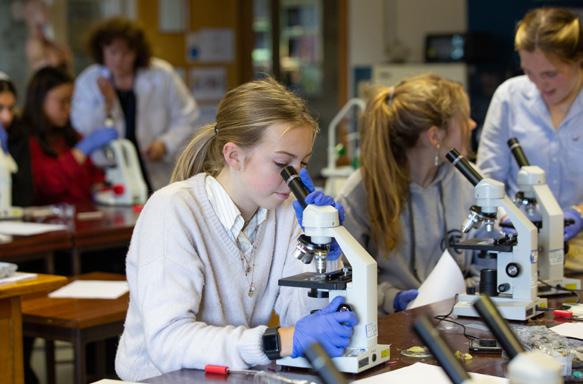
Year 12
— Biological molecules
— Cells
— Organisms exchange substances within their environment
— Genetic information, variation and relationships between organisms.
Year 13
— Energy transfers in and between organisms.
— Organisms respond to changes within their internal and external environment.
— Genetics, populations, evolution and ecosystems.
— The control of gene expression.
The course is assessed as follows:
Paper 1 (35%) 2 Hours
Any content from topics 1-4.
Includes short and long answer questions and extended response questions
Paper 2 (35%) 2 Hours
Any content from topics 5-8
Includes short and long answer questions and a comprehension question.
Paper 3 (30%) 2 Hours
Any content from topics 1-8.
Includes structured questions, critical analysis of experimental data and one essay from a choice of two.
There is no coursework, however relevant required practical knowledge will be assessed in all papers.
There is a residential field trip in the summer term in which students will put their understanding of ecosystems and human impacts into practice, further developing fieldwork techniques alongside experts in their field.
Enrichment
— Sixth Form Biology students are invited to attend and joint-lead ‘Dissection club’.
— Students interested in studying a Biology-based degree are invited to take part in ‘MedSoc’, where students discuss and debate the requirements of Science based careers and expand their knowledge of scientific research by reading about and discussing current scientific advances.
— We promote participation in the Intermediate Biology Olympiad for Year 12 students and the Biology Olympiad in Year 13.
— Students can volunteer to mentor younger students.
15 AQA
Biology
Business Studies
Year 13
Theme 3: Managing business decisions and strategies. This theme develops the concepts introduced in Theme 2.
Business objectives and strategy
Business growth
Decision-making techniques
Influences on business decisions
Assessing competitiveness
Managing change.
Theme 4 : Global Business. This theme develops the concepts introduced in Theme 1.
Course Outline
This A Level Business course enables you to develop a holistic understanding of a business and how it’s managed in a range of contexts. It shows you the role of generating enterprising and creative approaches to business opportunities, problems and issues. It makes you aware of the ethical dilemmas and responsibilities faced by organisations. This course equips you with a range of relevant business and transferable skills including decision making, problem solving and critical thinking, it teaches you the importance of challenging assumptions. You will be able to apply numerical skills in a range of business contexts. These skills are all highly sought after and valued in a wide range of future careers.
Year 12
Theme 1: Marketing and People
Meeting customer needs
The market
Marketing mix and strategy
Managing people
Entrepreneurs and leaders.
Theme 2: Managing business activities
Raising finance
Financial planning
Managing finance
Resource management
External influences.
Globalisation
Global markets and business expansion
Global marketing
Global industries and companies (multinational corporations).
Assessment
A Level assessment consists of three x 2 hour written exams taken at the end of the two-year course. Each exam will be worth a third of the A Level.
Paper 1 : Questions will be drawn from Theme 1 and Theme 4, and from local, national and global contexts.
Paper 2: Questions will be drawn from Theme 2 and Theme 3, and from local, national and global contexts.
Paper 3 : Investigating business in a competitive environment. Questions will be drawn from all four themes and in national, and global contexts. A prereleased context document allows the students to investigate the industry, businesses in the industry at all levels.
Career Opportunities
If you would like to study Business, Finance or Management at university, A Level Business provides an excellent foundation. The skills you learn are transferable across a broad range of subjects and careers.
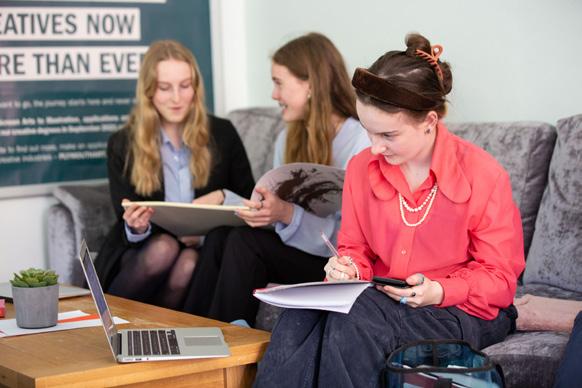
16 EDEXCEL
Chemistry
Chemists are highly valued scientists, providing expertise in the fields of medicine, veterinary science, pharmacy, dentistry, chemical engineering, polymer science, materials science and many other disciplines. For all of these employment areas advanced higher education training is required. Entry to such courses invariably demands Chemistry as an essential qualification.
Chemistry will expand your thinking and help you develop sophisticated models of some abstract processes and structures. It will train you to sort and analyse data, communicating the outcomes using appropriate scientific language. This is a tremendously valuable skill which is well regarded no matter what course of study is pursued beyond A Level.
Course outline
Chemistry is studied in three main branches:
— Physical Chemistry – the understanding of how chemistry works.
— Organic Chemistry – the study of compounds containing carbon (the chemistry of life).
— Inorganic Chemistry – the study of the elements and patterns in the Periodic Table.
In Year 12 you will be given a solid grounding in foundation Chemistry. You will develop your GCSE understanding of the reactivity of atoms and molecules and gain an understanding of atomic and molecular structure. The construction of the Periodic Table is considered and organic chemistry is introduced.
In Year 13 you gain a deeper knowledge and understanding of the three branches of Chemistry. Paper 1 assesses bonding, energetics, equilibria, redox and inorganic chemistry, while Paper 2 assesses kinetics and organic chemistry. The third paper assesses practical skills, data handling and a synopsis of all the theoretical content. All three papers are 2 hours long. There is also a practical endorsement of the experiments carried out through the course.
A Level Chemistry is a challenging and rewarding course of study, which requires absolute commitment to make a success of the subject. The calculations aspect of the course requires a good Mathematical grounding from GCSE.

There are many opportunities to get involved in additional activities. Why not come along to the Sixth Form Science Society, help with the KS3 Science Club or offer to mentor a younger student in their studies? There are opportunities to extend knowledge and skills by competing in the RSC Chemistry Olympiad (in Year 12 and 13) as well as taking part in the Cambridge Chemistry Challenge in Year 12. We also synthesise aspirin during the course and then take this to Bath University to analyse your product using their state-of-the-art spectroscopy machines.
For potential dentists, and vets we run a Medical Society for you to meet, discuss and debate the requirements of these careers. From time to time we have speakers who may present their research or may talk about careers such as Pharmacy to interested students. Many students subscribe to Chemistry Review for extra reading.
17 AQA A-LEVEL
Classical Civilisation
OCR (H408)
Course outline
Classical Civilisation draws on both the Greek and Roman world, covering a wide range of topics and ideas. You will study both ancient literature in English translation, giving you the chance to explore and discuss fascinating texts with universal themes of love and loss, as well as studying visual and archaeological sources, including a range of Greek art and architecture.
Over the two-year course, you will study three components:
The World of the Hero – 2 hours 30 min. 100 marks (40%)
In this paper, you study both Homer’s Odyssey and Virgil’s Aeneid. This gives you the opportunity to discover two of the most beautiful and influential epic poems in Western Civilisation from both Ancient Greece and Rome. The Eighth Century BCE poems of Homer with their exciting narratives, gods and heroes were considered by the Greeks themselves to be a foundation of Greek culture. Drawing inspiration from Homer, as well as from his own very different cultural and political context of the First Century BCE, Virgil explored what it was to be a hero in the Roman world. By analysing and comparing both texts in translation we can explore the attitudes and values these epics reveal and can appreciate why they have never lost their impact.
Culture and the Arts – 1 hour 45 min. (30%)
Greek Theatre forms some of the most powerful literature of the ancient world and has had a profound and wide-reaching influence on modern culture.
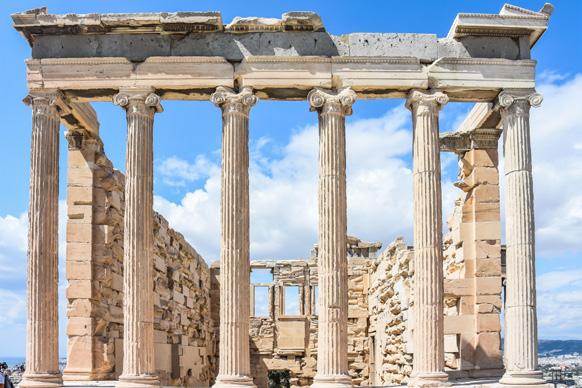
You will study not only the plays themselves, but the context in which their form and production developed, including the physical theatre space and depictions of the plays being performed. Both fantastic tragedy and comedy is studied with Sophocles’ Oedipus the King, Euripides’ Bacchae and Aristophanes’ Frogs. Be prepared to be shocked and amazed!
Beliefs and Ideas – 1 hour 45 min. (30%)
Religion was an essential part of ancient Greek identity and could be connected to the household, the city, county life and every element of the political world. You will study the practicalities of religious ritual, the role it played in society, the functions and layout of famous temple complexes and develop your sense of the central role religion played in the life of everyday people. Also included are the very different role of Mystery Cults, and the tensions caused by the rise of philosophical thinking.
Classicists learn skills which employers value. They are independent thinkers, analytical, good at problem-solving and articulate. Employers know that Classicists can think and write clearly and that they appreciate the value of other cultures and communities. You will be encouraged to extend your study beyond the classroom, through attending lectures and educational visits, including opportunities to visit classical sites in Italy or Greece. We promote wider reading and advertise relevant visiting author tours. Essay competitions and the Classical Symposium help develop research and presentation skills. All this sets you in good stead for the future, no matter what it holds.
Classical Civilisation is open to all students and will work well with any combination of subjects. You do not need to have studied GCSE Latin, Greek or Classical Civilisation. It offers you the opportunity to explore the literature, art, history, politics, beliefs and culture of the ancient world. If you enjoy History or English Literature, Psychology or Religion and Philosophy, then you can be confident that you will be well-suited to this course. However, if you are interested in life, people and the big ideas and beliefs that shape us, then this subject is for you!
At RHSB, you will be encouraged to extend your study beyond the classroom. Typical experiences include study days in the UK, theatre trips and visits from authors and university lecturers, as well as residential trips which are offered further afield from Hadrian’s Wall to Italy.
18
Computer Science
(H446)
Course Outline
This important STEM subject gives students an experience of how computers and networks operate, from the very basics of logic gates to how search engines work. Computer Science is a practical subject where students can apply the academic principles learned in the classroom to real-world systems. It’s an intensely creative subject that develops logic and problem-solving skills as well as resilience and higher-level thinking.
This course is suited to those who would enjoy finding out more about the technical world around them. An interest in developing solutions using code and being creative is very helpful. Students will have to sit two written papers in the second year of the course:

— Computing Principles (40%)
— Algorithms and Problem Solving (40%)
Students create their own solutions to solve problems in a larger project which is the non-exam assessment which is worth 20% of the marks. There is no requirement to have studied GCSE in this subject but a strong problem solving ability and logical thinking are essential.
This A level opens doors to further study, especially if taken alongside Maths and Further Maths. There is a huge gender bias in this subject against girls and we are proud to be able to encourage students to believe that this subject that they can excel in. Students have used their Computer Science knowledge as a differentiator in any UCAS or job application and to prove their technological, logic and problem solving skills. Almost every year we have several students opting to study Computer Science or Software Engineering after leaving school, but equally it has opened other degree opportunities such as robotics, AI and Crime and Security Science. Students have also gone onto undertake fully sponsored degrees with PWC. There are lots of degree apprenticeships available in software engineering throughout the country which is a fantastic opportunity for students to earn and learn with companies such as BBC, BAE, Rolls Royce, Google and KPMG.
Students in the past have opted to do a specialist CyberEPQ and the GDST Space Diploma Program in the sixth form – both of which brings additional opportunities in terms of career engagement. We enter a variety of coding competitions and also seek to find other problem solving opportunities, work experience and also teaching in the Prep School.
19
OCR
Design Technology
Examination Paper 2 – 1.5 hrs – 20%
Mixture of short and extended responses
Product analysis
Commercial Manufacture
NEA- 50%
Students own design context
Careers
Course Outline
At A Level Design Technology we encourage students to think creatively, take risks and develop innovative solutions to real-world design challenges. Whilst instilling an appreciation for sustainability and ethical considerations, emphasising responsible design practices that minimise the environmental impact. Students will have a comprehensive understanding of materials, manufacturing processes, emerging technologies, equipping students with the technical prowess needed to design and produce high-quality products. Throughout the course students will nurture their analytical and critical thinking skills through the iterative design process to evaluate designs, make informed decisions and continuously improve their prototypes.
The A Level course gives you the freedom to design and make outcomes within any context that suits you, creating a portfolio of outstanding work. The course contains content which will jump into science and maths giving contextual understanding and application, this will reflect 15% of the examination content. Technical knowledge of materials and design principles will form the basis of the remaining theoretical content. The course is taught in a linear format with both examination papers taken on completion of the second year.
Examination Paper 1 – 2.5 hrs – 30%
Mixture of short and extended responses
Technical principles
Studying A Level Product Design is an opportunity to satisfy your creative appetite combined with a healthy serving of academic rigour. The course provides a thought-provoking qualification giving students the theoretical knowledge, confidence and practical skill to succeed in any number of careers, including:
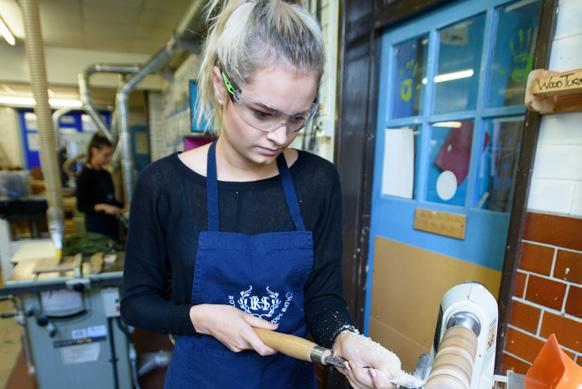
— Product Designer
— CAD Design/Engineer
— Architect
— Engineer – Civil/ Structural/ Architectural/ Aeronautical
— Industrial Designer
— Creative Director
— Graphic Designer
— Interior and special Designer
— Furniture Design
— TV and Film Set Designer
— Fashion/Clothing Technologist
— Production Management
The RHSB Technology department is fully equipped with all modern manufacturing machinery required to make and prototype most products. With twin head 3D printers, 40W metal tube laser and a full sized 4 axis CNC router, whether you choose to prototype fully with CADCAM or more traditionally in the fully equipped modern workshop you have fantastic opportunities. The department is stocked with a wide variety of materials and resources and of course the expertise to help you access the equipment.
Students are encouraged to participate fully in the department, and we really try to encourage the “can do and the more you put in and the more you get out” attitude to learning. A Level students can access the department facility outside of lesson time so long as a member of staff is present. Students are encouraged to engage in activities beyond the curriculum which might involve competitions, enterprise or enrichment activities.
20 AQA PRODUCT DESIGN
Drama and Theatre
Co-curricular Activities
Alongside course study, Sixth Form Drama students are offered the opportunity to watch some of the best live performances in various theatres around the country including the National Theatre, Chichester Festival Theatre and the Bristol Old Vic.
Course Outline
This highly practical specification provides learners with the opportunity to work as either performers and/or designers on three different performances. This is an exciting, rigorous and dynamic course. Overall students will study 5 different texts, and assessments vary from live performance, portfolios and written exams. Students are able to submit acting or technical pieces for examinations.
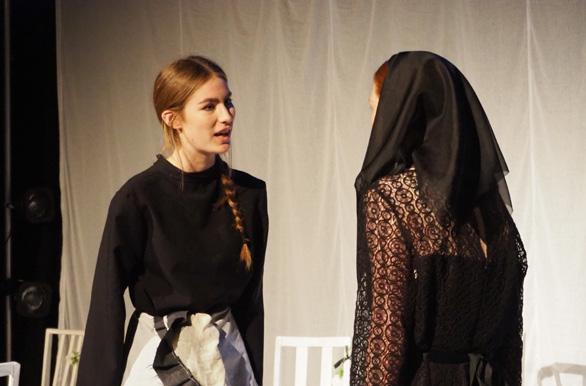
Component 1: Theatre Workshop (20%) Learners participate in the creation, development and performance of one reinterpretation of an extract from a text, using the working methods and techniques of either an influential theatre practitioner or a recognised theatre company.
Component 2: Text in Action (40%) Learners participate in the creation, development and performance of one devised piece using the working methods and techniques of a second different influential theatre practitioner or recognised theatre company and one extract from a text in a contrasting style to the devised performance.
Component 3: Text in Performance (40%) Learners explore three complete performance texts from different historical periods. Currently, we study the plays, Hedda Gabler, Chimerica and The Curious Incident of the Dog in the Night-time.
Students are offered the opportunity to attend a weekend residential in London which includes a National Theatre backstage Tour and a selection of Professionally Led Drama School workshops. Students have the chance to work with visiting theatre companies. In the past, we have welcomed Frantic Assembly, Splendid Productions and Hammerpuzzle. A Level students are encouraged to participate in school productions as well as producing their own performances. Recent alumni have gone on to train at nationally and internationally recognised Drama schools and Universities such as: Bristol Old Vic Theatre School, The Guildhall School of Music and Drama, Bard College New York and both Royal Holloway and Goldsmith Universities. Many students go on to pursue professional careers in the theatre, television and film, both as actors and behind the scenes as directors, producers and technicians. Recent alumni have enjoyed careers in the West End and English National Opera as well as establishing their own theatre companies.
Drama is equally important in such fields as: Law; Medicine; Teaching; Advertising; PR; Logistics; Events Management. Top business and finance firms appreciate Drama and Theatre students for their inherent leadership, problem-solving, and people management competencies. Many of our students have been awarded places at illustrious universities including those of the Russell Group and Oxbridge.
21 WJEC EDUQAS
Economics A
Because of the high level of the subject, it is liked by universities across the globe.
The course is taught through 4 distinct themes:
Theme 1: Introduction to Markets and Market Failure.
Theme 2: The UK Economy, Performance and Policies.
Theme 3: Business Behaviour and the Labour Market.
Theme 4: Global Perspective.
There are 3 exam papers, each 2 hours long, there is no coursework
Course Outline
It is a fascinating time to study economics as we look, discuss and debate what’s happening at national and global level. Contemporary topics like, Brexit, impact of Covid 19, and re-evaluation of globalisation as we look at supply chain challenges and inflation.
Economics is an ideal subject if you want to study PPE, Economics, Politics, Philosophy, Accountancy, Management, International Relations, work in the City or Law, be an entrepreneur, a journalist or a civil servant.
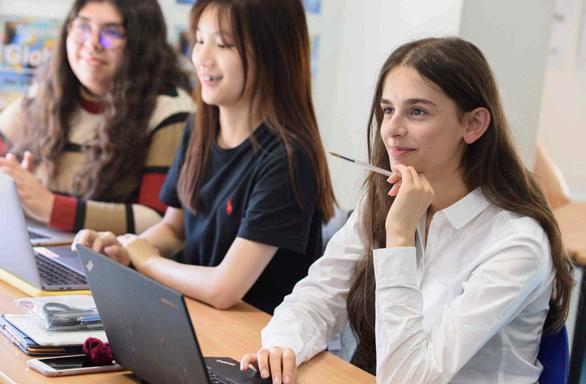
It is also a subject for you if you want to know what happens to the taxes we pay, why can’t the government print money to eradicate poverty, what is the solution to the current high inflation across the world. We also look at how markets and businesses behave and why to what extent does that needs to be monitored by the government.
Economics complements both arts and science subjects. Those who are most suited to Economics should be able to communicate their ideas in words and numbers, so you need to be literate and reasonably numerate. You should be able to read case studies and unpin the information given. The mathematics element is where you have to be able to analyse and evaluate the data given. Most Economics degrees require A Level Mathematics.
22 EDEXCEL A
“I chose Economics at A Level because it is a subject that encompasses all that I am passionate about. I have always been interested in current affairs and studying Economics at this level has just enforced this interest.”
Course Outline
Studying English Literature in the Sixth Form is an enriching experience. As always, our aim is to develop your ability to think critically and to express yourself with confidence and flair. The English Department is central to the vibrant cultural life of the school. Trips to the theatre may take place and debating and public speaking are a regular fixture of Sixth Form life. Students may participate in editing the school magazine or attend a lunchtime LitLunch session held in the Sixth Form library –a great way to broaden horizons and share ideas.
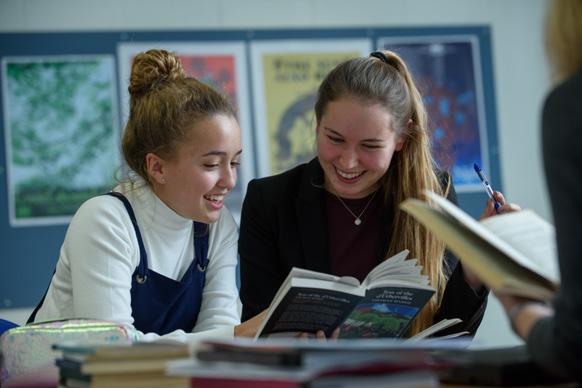
The course offers you the chance to explore English Literature in all its diversity. You will encounter a wide range of texts, whether it is the rumbustious chaos of Shakespearean tragedy to the haunting strangeness of some contemporary global fiction. You might explore modern novels such as Khaled Hosseini’s ‘A Thousand Splendid Suns’, and Margaret Atwood’s ‘The Handmaid’s Tale’, a disturbing depiction of a dystopian society. Alongside these modern classics, you will study canonical works such as Mary Shelley’s ‘Frankenstein’ or Thomas Hardy’s ‘Tess of the D’Urbervilles’. Drama figures strongly too, with plays such as Shakespeare’s ‘Hamlet’ or ‘King Lear’ as well as works by other authors such as Marlowe’s ‘Doctor Faustus’. At the heart of the course is a superb collection of modern poetry which captures modern life in transgressive and experimental ways. There is also a coursework component which we will tackle in the spring and summer terms of Year 12: you will have the agency to select writers about
which you are passionate and compare two texts on a similar theme, exploring your own ideas about characters, language and critical theory.
In English you will develop skills of critical analysis, critical-thinking and communication, study the human condition, enhance your cultural awareness, develop a sense of self and understanding of others, gain a qualification highly regarded by universities and employers, exchange ideas in informal groups where your opinions are valued, work with a passionate department, discuss political philosophies, ethics and morality, life, death and everything in between.
As teachers, we always seek to elicit your contributions and to hear your views, so try to be brave and speak up. When you express your opinions in class it helps you develop academically too – you are learning to see ideas threedimensionally and to articulate them with precision. Whatever you opt for, if you have an enquiring mind and enjoy reading and discussion, this is the perfect choice for you.
There are four sections of the course:
— Drama (30%): Exam – 2 hours 15 mins.
— Prose (20%): Exam – 1 hour 15 mins.
— Poetry (30%): Exam – 2 hours 15 mins.
— Coursework (20%)
Debating Club and Culture Club are some of the most popular societies in the Sixth Form. At Debating Club you can learn the protocols and fundamental skills of British parliamentary debating, opening a window to a competitive community of school debating through the myriad of competitions that we enter. Culture Club is an eclectic discussion group; one week we might explore how Netflix has transformed story-telling across the arts or how jazz music has influenced American identity, the next we may focus on radical scepticism, ancient ethics or social contract theory.
23 EDEXCEL
English
Fine Art
The purpose of the coursework element is to give you space and time to really invest in your personal project as this will run from September of Year 12 until December of Year 13. You will be fully supported in your creativity by learning new techniques, personalised one to one feedback and access to the extensive Art Library.
Course outline
A Level Fine Art is a wonderful opportunity to really explore your creativity and enable yourself to learn new skills, personalise your work and prepare yourself for further study in the creative industries.
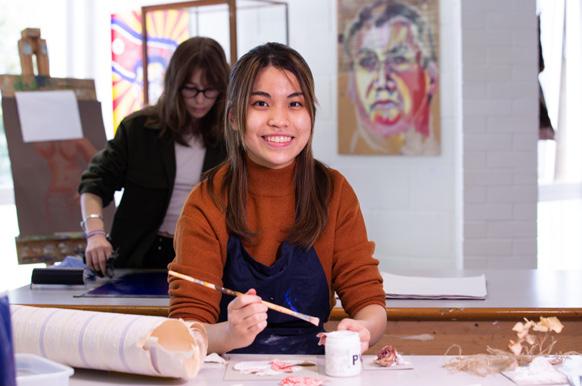
The structure of the course is 60% Coursework and 40% Exam project with a written element that is a reflection on how you have developed your ideas and refined your work during the coursework element. There is no written exam.
You will start the course by beginning a personal project that will be developed through careful research of other artists work, experimentation with a range of media and careful drawing from life to support your developing ideas. This research will be documented through a series of sketch books and through the studio work that you will make in class with us, which will include painting, drawing, printmaking and sculpture. You will also be encouraged to explore digital and traditional photography as well as the use of video projection and installation.
The exam project will start in February of Year 13. You will be given an externally set exam paper that asks you to respond to one of the suggested themes. To do this you will start a new sketch book and again explore ideas through research, experimentation, and drawing. You will be given about 10 weeks to develop your ideas in advance of the 15-hour (3 day) exam where you will use your developed work in your sketch book to inform what you will make as your chosen final outcome.
This is a rigorous and deeply rewarding program of study that prepares you well for future study in the creative industries.
As part of the 2 Year course of study we run biennial trips to London and New York to fully immerse our students in creative possibilities. We have a rich and engaging Art Scholars programme and have visiting artists and alumni coming to the Art School. We participate in many exhibition opportunities outside of the school site however, we are extremely proud of our end of year summer show which is a showcase celebration of all of the hard work done by our fabulously creative Sixth Form students.
We recommend that students attend a one-year Art Foundation after A Levels so they can really hone their skills towards a particular discipline and chose the correct Degree Pathway for them. However, students can go straight to their chosen Degree. Examples of this are Architecture at Cambridge, illustration at Falmouth College of Art, Fine Art at The Slade, Theatre Design at UCL, Concept Art for Games and Film at Staffordshire University to name but a few.
24 AQA SPECIFICATION A
Course outline
At A Level you will be building upon the skills learnt and developed at IGCSE – listening, speaking, reading, and writing – but the topics will be more contemporary and more relevant to your age, experience, and interests and therefore more engaging and motivating.
You will increase your knowledge of countries where French is spoken through the study of the language in its cultural, literary, and social context. You will be assessed on speaking, reading, listening and translation which will be based on the areas of study. For the writing you will produce essays related to stimulating films and literary texts.
The A Level topics cover current trends (for example cybersociety), current issues such as: positive features of a diverse society, aspects of culture (contemporary music, cinema etc.), and aspects of political life, a very contemporary topic.
You will have an additional lesson each week, in which you will work on your spoken French with our conversation teacher and prepare for the oral tests. You will take 2 papers are A Level, as well as an oral examination (30%): 21-23 mins/60 marks
— Paper 1 (20%): Writing – 2 hours/80 marks.
— Paper 2 (50%): Language/Reading/ Writing –2 hours 30mins/100 marks.
Modern linguists are in high demand because of the analytical and communication skills developed through learning a language. The presentations that you will be required to give in class, for example, will be good training for the workplace.
Apart from the more obvious careers in interpreting, translating, and teaching, French students and graduates are highly sought after in the fields of business, banking, accountancy, and the law.
Learning a language takes you beyond the classroom and into the way of life of another nation. French culture is so rich and varied. You will learn about French art, music, literature, and cinema. There will be opportunities to read poetry and listen to songs, and even to write some of your own, if you wish. There will be films to watch, perhaps as a backdrop to the literary texts under discussion. Of course, there will also be the chance to spend time in France through study visits – the best way to improve your spoken French and gain an in-depth understanding of contemporary French society.
“Studying French at A Level has been invigorating, enlightening and more than anything, fun. From learning about French culture to reading French literature, the A Level course has enabled me to gain an insight into such a fascinating country.”

25 AQA
French
Geography
We will undertake a total of four days fieldwork across the two years. These will be run a day trips within a few hours drive of the school. These experiences will partly contribute to the students’ personal investigation as well as embedding knowledge from some topics such as dynamic coastal and urban environments.
Course Outline
The Geography A Level course is a two-year linear programme which follows the Eduqas syllabus. It contains a mixture of human and physical geography units. Physical topics include the study of earthquakes and volcanoes, coastal processes, climatic hazards and the carbon and water cycles. Within each we develop a detailed understanding of the processes involved with these physical systems as well as managing human interactions with them.
The human geography topics cover the changes and pressures affecting cities and rural areas in different countries. We learn about how global ocean resources are managed. We discuss the patterns and complexity of international migration issues. We look at issues relating to our use of energy resources and how sustainable our actions are.
In addition to the three written examination units, students will also undertake a personal investigation based on fieldwork data collection. This report will be worth 20% of the overall assessment marks and is around 4,000 words. Students will need to identify a topic of interest to them for this investigation, develop a methodology to obtain data and then analyse and evaluate their findings. This research and the report produced is an excellent preparation for university skills.
We teach students to use sophisticated computer mapping and analytical software (GIS) to examine spatial relationships. We are recognised as an Esri Centre of Excellence in GIS education. Our department was also awarded the Royal Geographical Society Ordnance Survey Award for Excellence in Secondary Education, and has also won a Pearson Silver Teaching Award. In addition, our department was awarded the prestigious ‘Centre of Excellence’ status by the Geographical Association.
The course will develop skills in research and analysis. It will enhance spatial literacy and understanding of very topical issues facing our world. For further information please visit the exam board website.
Our department runs international trips to such places as Iceland, Morocco and Italy.
Geography is one of those subjects that you will find yourself using in so many ways in the future. These will range from simply having a better understanding of current affairs, to utilising your map work, research and communication skills in almost any career choice.
Directly related careers include environmental science research, town planning and overseas development work. However, most employers will value your world understanding as well as your sophisticated analytical skills, demonstrated through tasks like your fieldwork project.
Geographers leave Higher Education to work in many fields including international finance, marketing, public relations and journalism.
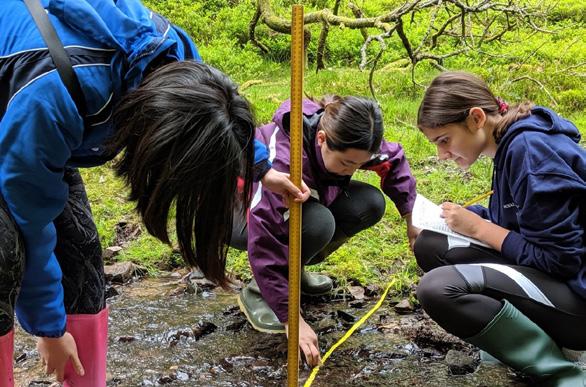
26 EDUCAS
German
In addition you will have gained an insight into Germany, Switzerland and Austria, their people, language and culture. Taking German at A Level will give you the potential to pursue it at a higher level, possibly with another subject.

Course Outline
Paper 1 Listening, reading and writing (50%).
Paper 2 Writing (20%) writing about the film and text studied.
Paper 3 Oral (30%) discussion of a topic and an individual research project.
Year 1 and 2 of the course will allow you to extend your knowledge of language by building upon the skills learnt and developed at GCSE, becoming more proficient at listening, speaking, reading and writing.
Many topics are covered, including; youth culture (music, fashion), the family, the effects of technology, festivals and traditions, aspects of multiculturalism in German speaking countries, aspects of the artistic and political culture in the target language countries such as German reunification and its consequences.
An exciting and rewarding part of the course is the study of film and literature, both of which will give you insights into the culture of the language. By the end of the course you will feel confident about speaking, writing and understanding German.
German will interest you if you enjoy communicating with others and wish to broaden your cultural horizons. If you like literature and film these aspects of the course will appeal to you. A good memory for new words and an understanding of how grammar works are helpful and we will build on these skills. You will also conduct an Independent Research Project on a theme of your choice related to German culture so you will have the chance to focus on your specific area of interest. You will also have the opportunity to participate in a language visit to Berlin.
As a linguist, a huge array of career options is open to you. German is the most widely spoken language in Europe with 110 million speakers. German speaking nations are at the forefront of design, environmental and scientific technology. German can be combined with many other subjects, allowing students to develop linguistic and vocational skills.
Former students have studied German and Law, German and History, German and Russian. The transferable skills of linguists make them highly sought after across all professions including banking, business, accounting, the media, travel and tourism. On average, languages graduates earn 8% more than their peers.
“Taking German at A Level allowed me to broaden my horizons, both culturally and academically. It’s challenging but definitely worth it for the satisfaction when everything falls into place. Having the chance to study German literature has also been a brilliant opportunity. German has been exciting, academically rigorous, but most of all a lot of fun.”
27 AQA
Course Outline
For our OCR A Level course we have selected three examined units which all centre on Revolutions: potent ideas of liberty and equality which challenged British rule over America and then crossed the Atlantic to pose serious questions to the British constitution and continued to reverberate through Europe, arguably culminating in the February Revolution in Russia in 1917.
Britain in the Age of Revolution 1783-1850 (25%)
Complementing the American unit we explore the challenges that a rapidly industrialising society posed to the political establishment. Specifically, we look at how governments reacted to the ‘Age of Revolutions’ and their approach to political and social reform. Students are assessed through the critical analysis of contemporary sources and evaluative essays.
Russia and its Rulers 1855-1964 (40%)
A thematic approach is crucial to this substantial paper that explores changes and continuities from Tsarist to Communist regimes. The revolutions of 1917 form a watershed but through analysis of Russian society, economy and governments, students will appreciate why Stalin can be called ‘The Red Tsar’. Assessment requires students to grapple with historians’ varied interpretations of events as well write synoptic essays that cover the entire 100 year period.
Coursework (20%)
Using the skills developed across their other papers, students select a topic to research and write a 4,000 word essay. This must evaluate both varied historical interpretations of the past and conflicting contemporary evidence in order to reach a clear judgement.
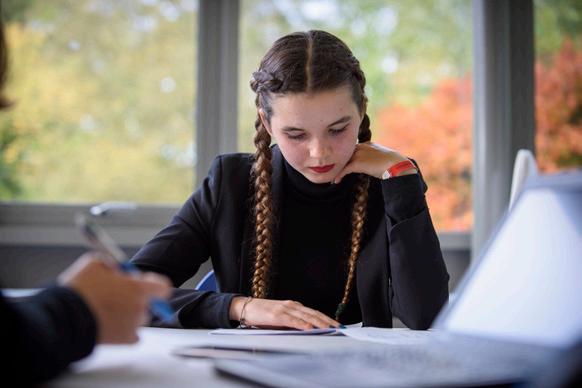
History at A level is suitable for those who enjoy learning about the past, and whilst having studied at GCSE level is of benefit, it is not a prerequisite. Textual analysis and fluent writing skills are both highly desirable, but most important is to enjoy setting out an argument and following it through to a thoroughly justified conclusion.
History is a highly regarded academic subject and as such is the gateway to many professional careers most notably law, journalism and the media, politics and the Civil Service. Academic careers, such as teaching in schools or universities and research fellowships, are also possibilities. The industry offers innumerable openings: historical sites, tours and retail.
28 OCR
History
Latin
Verse Literature (25%) 2 hours
To be examined in 2026: The fall of Troy! Virgil, Aeneid Book 2, 40–249; 2.268–317, 2.370–558.
In English: Virgil, Aeneid Book 2
Course Outline
The study of Latin in the Sixth Form allows for greater insight into the rich and varied culture of ancient Rome through the study of its diverse literature. The language component of the examination involves the translation and comprehension of unseen passages of Latin from a number of different authors, which will build upon your previous knowledge at GCSE, developing your language skills to tackle more complex passages. The truly wonderful literature component develops your literary analysis and allows you to explore the ideas, beliefs and culture of the ancient world in greater depth.
There is no coursework requirement, but four written examinations as follows:
Unseen Translation (33%) 1 hour 45 mins
In this paper, you will be trained to translate a passage of unseen narrative prose from Livy and a passage of unseen verse from Ovid into English. You will also learn the beauty of scansion and scan two lines of verse.
Prose Comprehension (17%) 1 hour 15 mins
In this paper, you will demonstrate your understanding of a passage of unseen prose text through comprehension, translation and questions on syntax and accidence.
Prose Literature (25%) 2 hours
To be examined in 2026: Imperial intrigue, family rivalry and murder!
Tacitus – Annals XII, 25–26, 41–43, 52–53, 56–59, 64–69; Annals XIV, 1–13.
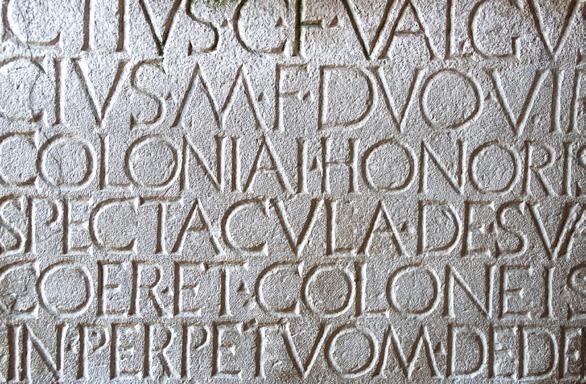
In English Annals XIII, 1–5, 10–18, 45–46
The literature components of the course will involve translation and stylistic appreciation of both prose and verse set texts. In both the literature papers, you will respond to passages from a set text, demonstrating knowledge and understanding of the wider context of the literature. You will translate passages of each set text into English, critically analyse the literary style, characterisation, argument and literary meaning of a passage and write at length, drawing upon a study of the set text as well as material studied in translation. By studying such authors, you will come to appreciate some of the finest classical literature and have a deeper understanding of its cultural context.
Latin will help your ability to think cogently as well as to write with clarity, conviction and panache. It underpins the study of other modern foreign languages, such as French, Italian and Spanish, whilst broadening your vocabulary in English and developing your critical thinking skills. Through analysis of the language, Latin is a perfect complement to English Literature as well as scientific and mathematical studies. The study of Latin offers a bridge between the contemporary world and the civilisations of antiquity, so the subject works well with any combination, whilst standing proud in its own right.
Classicists learn skills which employers value. They are independent thinkers, analytical, good at problem-solving and articulate. Employers know that Classicists can think and write clearly and that they appreciate the value of other cultures and communities. You will be encouraged to extend your study beyond the classroom, through attending lectures and educational visits, including opportunities to visit classical sites in Italy or Greece. We promote wider reading and advertise relevant visiting author tours. Essay competitions and the Classical Symposium help develop research and presentation skills. All this sets you in good stead for the future, no matter what it holds.
29
OCR (H443)
Mathematics and Further Mathematics
You can also opt to take Further Mathematics as an additional A Level. Here you will move at a faster pace through the Pure Maths and will take the Applied elements to a higher level. The Pure content will be at least 30% of this AS level and at least 50% of the full A Level. The remainder comprises options which could be yet more Pure content, additional Mechanics or Statistics, or could introduce the field of Decision Maths, which looks at Optimisation Problems and Algorithms, and is linked closely with Computer Science. Further Maths is a good choice if you want to do Maths, Physics or Engineering at University, or if you just love Maths!
Course Outline
The full A Level is a two-year linear course, with 66% of the content dedicated to Pure Maths. This will cover Algebra and Coordinate Geometry, and you will learn the intricacies of Trigonometry, Calculus, and be introduced to Logarithms.
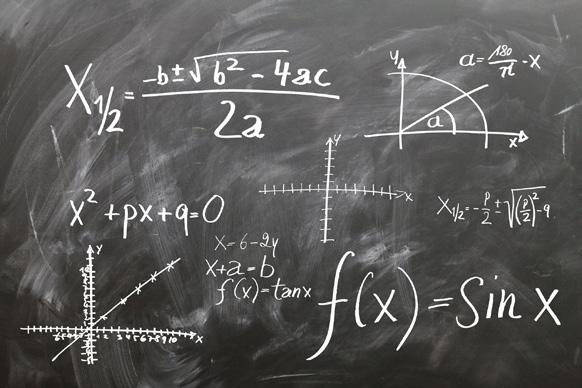
As you progress into Year 13, you will take this learning further to develop skills in Calculus so that you can solve differential equations and find volumes by rotating functions about the x or y axis. You will also be introduced to Vectors and further Series Expansions.
The remaining 34% will be divided between the two applied topics of Mechanics and Statistics. Mechanics explores forces and their effect on the world. The Statistics topic includes Probability, Correlation and Normal Distributions.
Many careers require you to have an A Level in Mathematics, or highly recommend it: Engineering, Economics, Operations research, Accountancy, Environmental Science, Finance, Insurance, Software design, Social Planning, Medicinal trials, Aviation, Construction, Design, Veterinary Science, Medicine, Risk Analysis, Programmer, to name but a few. For those not opting for an obviously Mathematical career, it is still an option which shows employers that your mind works logically and that you have a breadth to your education. Employers love candidates who are highly numerate.
We encourage students to engage in the wider applications of Mathematics, and in the past have organised trips to the Maths-In-Action lectures in London, and to the Maths Inspiration talks in Cardiff and Bristol. As a member of the Advanced Mathematics Support Programme we are up to date on local opportunities to engage in activities and lectures organised by the Universities of Bristol and Bath. The Senior Maths Challenge is always fully supported by our students, and we have a record of success in the regional finals of the Senior Team Maths Challenge.
Year 12 student
30 EDEXCEL
‘I enjoy the problem-solving aspect of maths particularly. I like using different methods and combining different maths modules and formulae to work out the answer.’
Music
Component 2: Composing
Non-examined assessment: externally assessed 30% of the qualification 60 marks.
A total of two compositions, one to a brief set by Pearson and one either free composition or also to a brief. One composition must be from either a list of briefs related to the areas of study, or a free composition, carrying 40 marks for this component. This composition must be at least 4 minutes in duration. One composition must be from a list of briefs assessing compositional technique, carrying 20 marks for this component. This composition must be at least 1 minute in duration, unless the brief specifies a longer minimum duration. The total time across both submissions must be a minimum of 6 minutes
Course Outline
Music A Level caters for all musicians, singers or instrumentalists, who have already achieved a GCSE grade 6 and/or achieved grade 5 standard or above on their instrument/ voice. It provides an extension to the skills learned at GCSE with the opportunity to develop more detailed knowledge of specific topics through focused study. As one of this country’s biggest industries, music is an ever expanding subject with countless benefits. A Level Music is challenging and rewarding, and can lead to university and conservatoire degree courses in a wide range of institutions. It demands commitment but provides scope for personal and intellectual development. It encompasses three areas of focus:
Component 1: Performing
Non-examined assessment: externally assessed 30% of the qualification 60 marks.
A public performance of one or more pieces, performed as a recital. This can be playing or singing solo, in an ensemble, improvising, or realising music using music technology. The total performance time across all pieces must be a minimum of 8 minutes. Performances must be recorded after 1st March in the year of certification and all materials for assessment submitted to arrive by 15th May in the year of certification.
Component 3: Appraising
Written examination: 90 minutes 40% of the qualification 100 marks.
Knowledge and understanding of musical elements, contexts and language. Application of knowledge through the context of six areas of study, each with three set works – Vocal Music, Instrumental Music, Music for Film, Popular Music and Jazz, Fusions, New Directions.
Application of knowledge to unfamiliar works. One written paper of 2 hours, with a total of 100 marks. One audio CD per student, with the extracts to accompany questions on the paper, will be given. This paper comprises two sections: A and B.
Music offers a wide range of career paths, from all kinds of performance work to composing for TV/film/radio, access to the performing arts and theatre, journalism and research, teaching, music therapy, instrument making, studio technology and much more. There are more jobs than ever in music business related areas, such as careers in digital marketing, social media, PR, technology, label services, ticketing and merchandising.
Alongside the course, there are opportunities to participate in a range of extra-curricular musical activities that will enhance your general and practical musicianship skills. These include: Orchestra, Chamber Choir, Concert Band, Chamber Ensembles, Pop and Rock Bands.
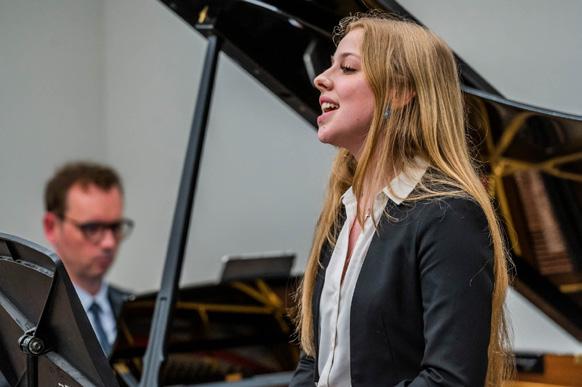
31
PEARSON EDEXCEL
Music Technology
Component 2: Technology based composition (20%) 60 marks
Non-examined assessment externally marked. The purpose of this component is to assess students’ skills in creating, editing and structuring sounds with increased sensitivity and control to develop a technology-based composition.
Creating, editing, manipulating and structuring sounds to produce a technology-based composition.
Component 3: Listening and analysing (25%) 75 marks
Written examination: 1 hour 30 mins
Course Outline
This qualification is designed to open up a range of exciting and useful tasks and to encourage students to learn about the subject. Students are encouraged to explore their musicality and create original material using technology. There is an emphasis on practical tasks with all tasks appropriate to the styles of music that use music technology.
The content is designed to develop a broad range of skills including project management, appraising and analysis, creativity and imagination. Students will be able to progress to undergraduate study in Music Technology including; Music technology. Sound production. Sound design.
Technology based composition (film, tv, video games).
Component 1: Recording (20%) 60 marks. Nonexamined assessment externally marked.
The purpose of this component is to assess students’ skills in capturing, editing and mixing sounds to produce an audio recording with increased sensitivity and control.
Production tools and techniques to capture, edit, process and mix an audio recording.
The purpose of this component is for students to develop listening and analysing skills through the study of a range of music production techniques used in unfamiliar commercial recordings.
Knowledge and understanding of recording and production techniques and principles, in the context of a series of unfamiliar commercial recordings. Application of knowledge related to all three areas of study:

— Recording and production techniques for both corrective and creative purposes
Principles of sound and audio technology
The development of recording and production technology.
Component 4: Producing and analysing (35%) 105 marks
Written/practical examination: 2 hours 15 mins. This component assesses students’ knowledge of the techniques and principles of music technology through a series of written and practical tasks, in the context of audio and MIDI materials provided by Pearson.
The production stages of sound creation, audio editing and mixing will be covered.
Career opportunities: Sound Engineer, Music Producer, Film and TV composer, Commercial Music Producer. Alongside the course, there are opportunities to participate in a range of extra-curricular musical activities that will enhance your general and practical musicianship skills.
There is so much scope and opportunity within this course to follow my dreams of being a Music producer.
32 EDEXCEL
Course Outline
A-Level Photography consists of a Coursework element and an Externally set task each equating to 60% and 40% of the final grade respectively.

Throughout Year 12 you will be introduced to different techniques and processes:
pinhole photography
photograms
film photography
digital photography
Through a series of mini-projects you will have the chance to experiment with these techniques, learning how to use the darkroom and work with programs like Photoshop and Lightroom as you go. Towards the end of the year, you will start to develop a Personal Investigation, this may grow out of an area or technique that you enjoyed working with previously, or an area you want to look at in greater detail. This Personal Investigation will continue until Christmas in Year 13, when you will be asked to put forward your selected images in an engaging final presentation – this could be a book, a display, a projection, an installation or whatever you feel is the most appropriate way for your work to be viewed. The Personal Investigation is totally driven by your own interests and decisions. Alongside this you will be asked to write a short 1000 word essay about a photographer, artist or movement that relates to your chosen area of study.
In January of Year 13 you will start the externally set task. You will receive a paper with a range of different starting points on it and be asked to develop one of these into a project and final outcome, which will be resolved in a 15-hour controlled assessment in early May (during the assessment you will work with photoshop and/or process previously taken photos in the darkroom, to produce a final presentation). There is no final written exam.
For this qualification we follow the OCR syllabus. Throughout the course you will be asked to think critically about the photographs you are taking and will be reminded of, and measured against the 4 Assessment Objectives: how you Develop, Explore, Record and Present your work.
This subject will appeal to visual thinkers people who enjoy communication creative individuals who want to experiment with new (and old!) techniques students looking to go on to study in the creative sector generally or specifically the fashion, filmmaking, fine art or marketing worlds.
You don’t have to have any experience of darkroom photography, film cameras or the workings of a digital camera, you will learn how to use all of the technology you work with. However, it is always advantageous to have some prior experience. People studying Photography A-Level will be expected to be brave, thoughtful, creative and self-motivated, to enable them to capture the best images they can.
Walter Benjamin said “The illiterate of the future will not be the person that cannot read the alphabet but the one who cannot take a photograph”. This course will require you to develop your critical thinking and research skills and start to understand how to use programs such as Photoshop which are industry standards in the creative sector and for jobs such as marketing. Photography A-Level can lead onto university courses from Filmmaking and Photography to Media and Visual Communications. In taking Photography A-Level you are taking steps to becoming a person that asks deeper questions, communicates more succinctly and opens up richer connections for everyone.
33 OCR
Photography
Physical Education
The practical component of the course (worth 30% of the final grade) is assessed internally, with external moderation. Assessment in practical performance takes places in 1 sport, either as a coach or as a player/performer (15%).
Therefore, it is vital that candidates are participating regularly in this sport at school, club and/or representative level. There is a written or verbal presentation to assess a candidate’s ability to analyse and evaluate your performance (15%).
Course Outline
The A Level PE course is assessed through 2 written papers and a practical moderation in Year 13. Whilst GCSE PE is advantageous, there is no requirement to have studied PE previously as long as students are highly motivated and are regular participants in school sport and external sports clubs.
The theoretical component of the course (worth 70% of the final grade) will be taught across the 2 years with the following being the expected split:
Year 1: Applied anatomy and physiology, skill acquisition, sport and society, exercise physiology, biomechanics, sports psychology and the role of technology in sport.
Year 2: Builds on the concepts covered in Year 1 and includes energy systems, memory, injury prevention and rehabilitation, projectile motion, fluid mechanics, sport psychology and technology. The main focus of Year 1 is participation in sport, whereas the focus in Year 2 shifts towards the elite performer.
The broad nature of A Level Physical Education allows students to pursue a variety of university courses. Popular routes into Higher Education include Sport Science, Technology in Sport, Sport and Business, Teaching, Sports Development and Management. Additional degree choices include Physiotherapy, Chiropractic Care and Psychology, although students have also gone on to read areas such as Biology at their chosen university.
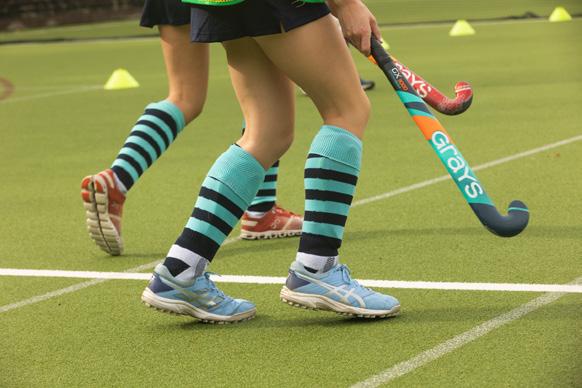
Past students have gone on to study Sports Science at a range of Russell Group Universities and Loughborough and Bath, which are regarded as the top universities for these subject choices.
A Level PE is seen by higher education establishments as a scientific subject but equally one that provides valuable personal qualities that sees students settle quickly into university life.
34 AQA
Course Outline
A Level Physics will give you the opportunity to study and think about the world around us, the world inside us and the world beyond us. You will find out how discoveries that have been made in Physics are applied by innovators and inventors to improve lives.
This course is for students who want to learn how to solve complex problems and have a strong interest in the world around them. Physics will teach you to analyse systems and quantify their effects. The skills you develop as a Physicist will be transferrable when approaching any novel scenario. For example, that might be managing an aspect of the energy transition, developing new sustainable technologies, or understanding the behaviour of our financial markets.
In the first year of the course, you will study the following topics:
Measurements and their errors
Particles and radiation
Waves, Mechanics, Materials
Electricity.
In the second year of the course, you will study:
Further mechanics
Thermal physics

Fields and Nuclear physics
Engineering physics (option topic)
It may be possible to study a different option topic with some level of self-study.
Throughout the course you will undertake practical activities to link theory to reality and to develop essential practical skills. These skills will be formally assessed by your teachers and the assessment will lead to a practical endorsement at the end of your course.
Employers of all kinds, rather than requiring specific subject knowledge, value core skills that are learnt through the Physics A-level course. This includes self-motivation, concise thinking and communication, a willingness to learn from mistakes and a sense of the bigger picture. When the salaries of students were compared six years after leaving school, Physics and Maths A-Level students occupied the highest earning positions. Physics A-level has been named as a “facilitating subject” by the Russell Group of universities, which means it can be useful for getting onto a wide range of university courses.
If you are interested in pursuing Medicine, Engineering, Architecture (and of course Physics) at university, a Physics A-Level is highly desirable. In addition, many physicists also combine their work with the other sciences to study things like meteorology (the atmosphere) and geophysics (the structure of the earth).
“Physics is diverse and challenging, Physics can deal with things that matter to ordinary people, and commands respect from employers!”
35 AQA
Physics
Psychology
Year 2
Biopsychology (e.g. biological rhythms, localisation of function of the brain).
Issues and debates in Psychology (e.g. gender and culture, free will and determinism, the ethical implications of research).
Inferential statistics.
Relationships (e.g. virtual relationships in social media, theories of romantic relationships).
Eating behaviour (e.g. biological and psychological explanations of anorexia nervosa and obesity).
Forensic Psychology (e.g. biological explanations of offender behaviour, offender profiling).
Course Outline
Psychology is the scientific study of human behaviour and the mind. The aim of the Psychology course is to encourage students to develop a sense of wonder about how the behaviour of other people can be explained using psychological theories. Students will naturally become curious about themselves and the world they live in.
Psychology students will gain a knowledge and understanding of scientific methods and the theoretical underpinnings of the research. Students will develop their critical thinking skills by learning to analyse, interpret and evaluate scientific information gained from research.
Practical skills will be developed when students design and conduct their own research, find relevant sources to support their hypotheses, and present their findings in a report format. Students will become proficient at presenting their findings using descriptive and inferential statistics.
Year 1
Social influence (e.g. conformity and obedience).
Memory (e.g. models of memory, explanations for forgetting).
Attachment (e.g. explanations of attachment).
Biopsychology (e.g. the nervous system and the function of the endocrine system).
Psychopathology (e.g. explanations and treatments of phobias and depression).
Approaches in Psychology.
Research methods, scientific processes, and techniques for data handling and analysis.
The course requires curiosity, an interest in human behaviour and a desire to explore and understand the complexities of the mind. To succeed students should have strong Maths and English skills. You will need to possess critical thinking skills so to analyse, interpret and evaluate scientific research. From this analysis you will be required to create logical written arguments. Research skills will be needed when students design and conduct their own research. Students will be expected to analyse and interpret the data gathered from this research, using descriptive and inferential statistics.
Previous students have progressed to study a degree in Psychology, Applied psychology and Business management, Psychological and behavioural studies and Criminology and Forensic studies. Studying Psychology will benefit you if you choose a profession in Teaching, Police, Law, Healthcare and Social services.
A Level students will examine Forensic psychology. When we explore the Offender profiling topic students will examine a recreated crime scene. They will become crime scene investigators and attempt to profile and identify the offender. They will listen to interviews with potential suspects and be asked to consider all the available evidence to determine the identity of the offender.

36 AQA
Religious Studies
Ethical language and thought
Debates about conscience
Developments in Christian Thought
Ideas of human nature: free will, death and the afterlife
The Nature of God: Creator and Incarnation
Christian ethical theory, and action: Bonhoeffer
Christianity in modern society:
Feminist theology
Liberation Theology
The challenge of Secularism: Freud and Dawkins
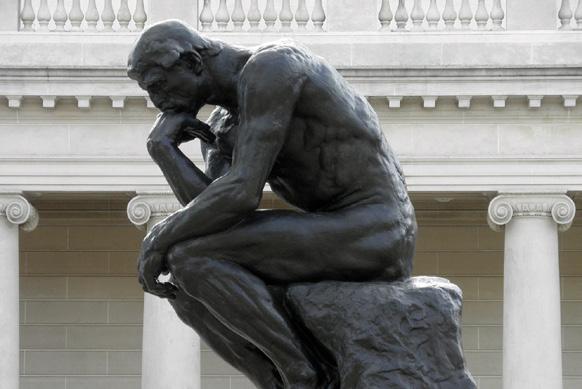
The A Level is assessed by three 2 hour exam papers at the end of year 13. They are all of equal weight:
Course Outline
The A Level in Religious Studies offers an exciting range of areas of study. Whilst keeping the popular elements of Philosophy and Ethics, it also adds the opportunity to look at developments in the thought of one religion. We offer DCT, which complements the other two modules. The specification covers a sweep of ideas from Plato and Aristotle through to modern times. It looks at contentious issues such as the problem of evil, and covers areas of current concern such as the gender debate and business ethics.
Course Content:
Philosophy of Religion
Ancient philosophical ideas from Plato and Aristotle
The nature of the soul, mind and body
Arguments about the existence or nonexistence of God
Religious Experience
The Problem of Evil
Ideas about the nature of God
Issues in religious language.
Religion and Ethics
Normative ethical theories:
Natural Law
Utilitarianism
Kant
Applied ethics:
Euthanasia
Business ethics
Sexual ethics
Philosophy of Religion
Religion and Ethics
Developments in Christian Thought
RS at A Level is a real and relevant exploration of the quest for meaning and understanding. It allows you to be introduced to an academic approach to Philosophy and Theology through topics which build upon GCSE. It can also be studied ‘from scratch’ by someone who has not done the GCSE. The main emphasis throughout the course is to develop a reasoned argument. This means that you will be encouraged to think for yourself; look for flaws in arguments; and come to conclusions about the success or failure of theories. Neither belief in a religion, nor lack of belief, is a necessity for this course. You need to have an open mind and a desire to study people’s beliefs in depth and to examine your own ideas.
Religious Studies is a well-established subject at A Level and at university. It is recognised as an academic subject by the universities, and one which equips students with highly transferable skills such as the ability to formulate arguments clearly, to make reasoned judgments and to evaluate highly complex and multifaceted issues. The subject leads to all sorts of careers in the arts, law, journalism, politics, languages. It helps with people-centred careers and medical ethical decisions. But most of all it teaches you to think and question and argue logically and coherently.
37 OCR
Course Outline
The Spanish A Level course enables students to develop their linguistic skills alongside their understanding of the culture and society of the countries where Spanish is spoken.
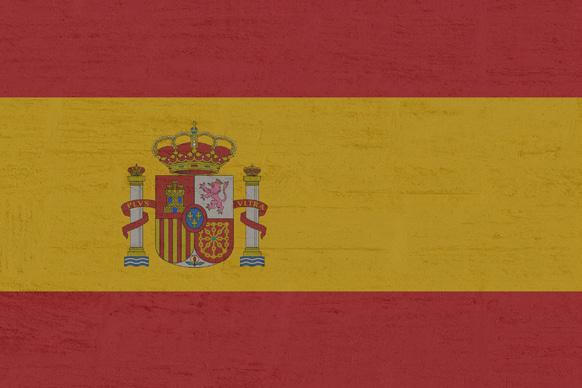
Paper 1 Listening, reading and writing (50%).
Paper 2 Writing (20%) writing about the film and text studied.
Paper 3 Oral (30%) discussion of a topic and an individual research project.
You will study the following topics in the context of the Hispanic world:
Technological and social change, for example social media and equal rights.
Highlights of Hispanic artistic culture, including a focus on Spanish regional identity and the cultural heritage of past civilisations, for example the Inca civilisation.
Aspects of the diverse political landscape of the Hispanic world, for example Latin American dictatorships.
The influence of the past on present-day Hispanic communities.
In Year 1 you will study a film and in Year 2 we will read a novel. This will enhance your language skills and give you an insight into the target language culture. You will also research a topic of your choice and discuss this in the oral assessment.
You will enjoy studying Spanish at A Level if you are passionate about exploring the culture of the Spanish-speaking world and developing your written and spoken communication skills. By the end of the course, you will be able to speak Spanish with confidence and fluency and be able to use your language skills at a high level, for example in the workplace, at further study in higher education or on a placement year abroad as part of a degree course. You will also conduct an Independent Research Project on a theme of your choice related to Spanish culture so you will have the chance to focus on your specific area of interest.
Apart from all the jobs that use languages directly (travel, teaching, interpreting/ translating, business, politics, law) the other skills that you develop are directly transferable in other areas. These skills include communication, flexibility, global awareness, and a rigorous and detailed approach to study. Learning Spanish opens up huge possibilities for travel and business in Spain, South America and Central America as well as in some important areas in the USA. Former students have gone on to study course combinations such as Spanish and Arabic, Spanish and International Relations, Spanish and English and Spanish and Biology.
“I chose Spanish because it’s a fun and challenging subject. Knowledge of a foreign language is a great life skill that is very attractive to employers.”
38 AQA
Spanish
Enrichment
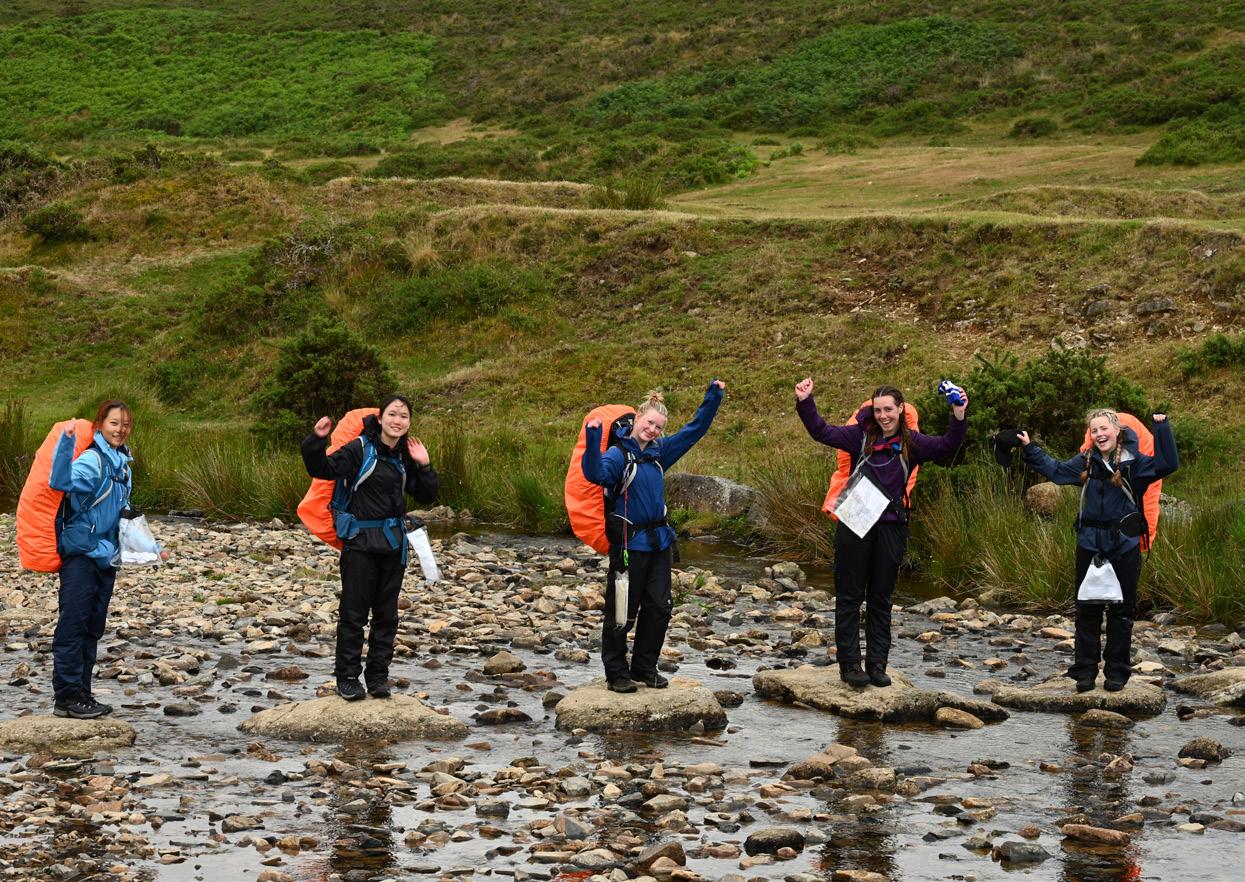
A Level enrichment
The project itself may take one of two formats: A 5000-word essay. The production of an artefact accompanied by a 1500-word report. statement.
All students will chart their progress in a Logbook which encourages personal reflection, and therefore a key benefit of the qualification is that students emerge with a better understanding of their own learning style.
The EPQ is undertaken in its entirety in Year 12 and is worth the equivalent of half an A Level in terms of its UCAS tariff points. It is very highly respected by Russell group universities, many of which provide students with ‘staggered’ offers, for example AAA OR AAB with an A at EPQ.
Students are offered a rich, diverse curriculum. As well as their 3 main A Level subjects students are actively encouraged to prepare themselves for university and careers through a variety of opportunities:
The EPQ Enrichment Subjects Enrichment Activities
By fully taking advantage of this generous provision students can build an attractive portfolio of additional skills, experiences and qualifications. Such engagement is given special recognition in our RHSB Tripos Award (see p43).
Extended Project Qualification (EPQ)
The Extended Project Qualification provides an excellent opportunity for our A Level students to develop their study skills and to research a topic that interests them.
The course comprises an introduction into important skills such as research and referencing, followed by the opportunity to undertake an independent research project based on a topic of the student’s choice.
All students are assigned a supervisor with whom they meet regularly for academic support and guidance.
The EPQ is popular with universities because it shows genuine interest in learning, researching, and working independently; all key indicators that a student is likely to make a success of university life! It also provides students with excellent material for the UCAS personal statement.
Taught Enrichment Courses
Alongside their A Level subjects, students may also choose to take an ‘Enrichment’ subject, drawn from Group 6 of the IB diploma, designed to complement and broaden their learning. These are rewarded on a scale of grades 1-7 and certificates awarded. A grade 7 is worth 28 points on the UCAS tariff (higher than a standalone AS Level qualification)
The range of ‘Enrichment’ subjects varies from year to year and is dependent on demand. We will take expressions of interest initially and then work up the timetable in tandem with the IB choices. Additionally, we offer a suite of qualifications and opportunities to help enrich Sixth Form life which your daughter may wish to fully commit to as well as or as an alternative to an enrichment subject.
Enrichment subjects typically include:
One or more IB Language B Qualifications e.g. French, Spanish, German, Mandarin (IB SL)
One or more IB Humanities subjects: Global Politics, Philosophy, Economics, Geography, History

Music (IBSL)
Visual Arts (IBSL)
Theatre Arts (IBSL)
40
To find full course descriptions for these subjects please look at the IB Diploma section.
Alternative Enrichment Qualifications and Opportunities:
BMat and UKCAT preparation (MedSoc)
London School of Economics Lead Programme
Foreign Language Leaders Qualification
Dance Leaders Qualification
Model United Nations
Course descriptions can be found here and in the schools SOCS programme these opportunities are encouraged for all members of the Sixth Form, A level and IB students.
Dance Leaders Qualification
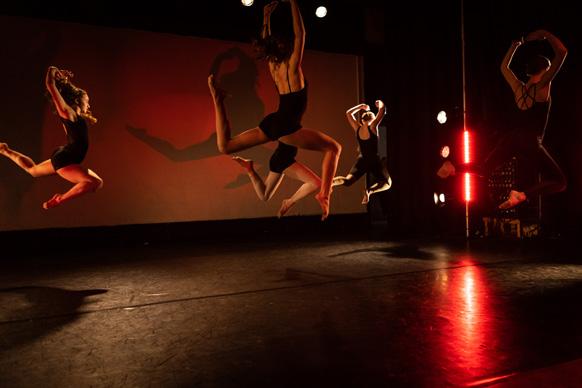
Contact: Miss Rebecca Kovacs
r.kovacs@rhsb.gdst.net
The Dance Leadership course focuses on developing important life skills such as effective communication and organisation whilst learning to lead basic dance activities to younger people, their peers, older generations and within the community. Students will plan, lead and evaluate dance activity sessions over a number of tutored hours and then demonstrate their leadership skills as part of their assessment. This practical course provides a great opportunity to provide a skill development whilst having a positive impact on physical activity levels in your community. Any style of dance can be used within the delivery of this award adding to the diversity of participation.
Through this course you will also be provided with the tools, to gain essential knowledge and confidence in the practical skills that come with leadership but also within topics such as safeguarding and Health and Safety. Once qualified, you will be able to lead safe, purposeful and enjoyable dance sessions under indirect supervision, plan, lead and evaluate dance sessions, assist in planning and leading a dance activity event and analyse the relationship between movement and music in dance choreography.
This course will also open doors for future opportunities, where students can assist the Dance department in leading dance clubs, assist with planning and lead groups at Dance events and be involved in Choreography projects, where you can grow your skills further. You will gain a Level 2 qualification in Dance Leadership accredited by SQL Sports Leaders.
Foreign Language Leader Award
The Foreign Language Leader Award is an opportunity for Sixth Form students to develop their communication, organisation and motivational skills by leading others through basic language activities. Students with a GCSE or IGCSE in a foreign language can participate in the course which is tutored by the Head of Modern Languages. There are five units to the course:
Planning, leading and reviewing a language activity.
Development of leadership skills.
Development of knowledge about language. Development of intercultural understanding. Planning a foreign language event.
The one-year course is a nationally recognised award that gives students the opportunity to develop the skills that are so highly valued by institutions of higher education.
41
GDST LEAD
LEAD (Leadership and Enterprise Advanced Diploma) is a programme run in partnership by the GDST and LSE Generate (the innovation arm of London School of Economics). Over two terms, the girls meet every week to learn the elements of entrepreneurship and start their own business. The programme culminates in a ‘Dragon’s Den’ style final showcase at the London School of Economics.
MedSoc
MedSoc is for students in Y10-13 interested in pursuing a career in medicine, vet medicine or another healthcare profession. It involves discussions, presentations and application support. You will be given guidance and practice at the questioning style in the BMAT and UKCat as well as a full experience of the variety of different styles of interviews.
Model United Nations

In the Spring Term one or more teams of Year 12 and Year 13 students take part in the Model United Nations conference. This takes place on the first weekend of March and teams are sent from all over Bath, the surrounding area and even from abroad. It is a big, very exciting and extremely informative event, much enjoyed by all the participants. You will learn a great deal about the countries you represent as well as meeting new people and making new friends. There will be opportunities for energetic debating and also for preparing challenging written resolutions with your team. The Model United Nations is also organised within universities and so this opportunity to take part in Year 12 can prove good experience and training for those of you interested in furthering your knowledge of international affairs during your Higher Education.
A member of a previous MUN delegation writes: “Model United Nations is an organisation that enables young people to get involved in debating the worldwide issues that concern the real United Nations. Each delegation represents a different member country of the UN and hence adopts its policies and opinions on the issues being discussed. A delegation consists of five to seven people who attend the MUN Conference and each delegate is on a different council, ranging from the human rights to the economic council.
A delegate can propose and debate her own resolution or simply contribute by supporting or amending another country’s resolution, or by questioning other speakers.
MUN is an excellent opportunity to explore any interests you may have in politics and current affairs in addition to displaying and improving your publicspeaking skills. Moreover, while it is an exciting challenge, it is also very enjoyable and an excellent chance to meet new people and learn more about world issues.”
42
Duke of Edinburgh Award
DofE is offered at three levels: Bronze, Silver and Gold. At Gold Level (aged 16+), there are five sections to be completed.
These are:
Skills Take up a new hobby or achieve a new target in an existing one.
Volunteering Take part in some form of voluntary work for someone in need.
Physical Participating in some form of physical exercise.
Expedition A journey with a purpose. You will be supported in the training and the practice and qualifying expeditions. Expeditions on foot are run directly through the school.
Residential (Gold only) Five days and four nights, away from home with people you mostly don’t know, carrying out a worthwhile project or activity.
Each section of DofE takes an average of an hour a week over a minimum period of months; the sections can be done separately or simultaneously depending upon the amount of time participants are able to dedicate.
The award is your own endeavour, but support and advice is at hand if you need it.
Royal High School Tripos
The Tripos offers recognition for the extra-curricular and enrichment activities that our A Level students are involved in, in addition to their main subjects. Open to all Year 12s, it is designed to foster curiosity, service and a sense of challenge. It has three main strands that must be met to obtain the award. These strands are based around the Royal High Learning Habits nurtured through our curriculum in the Senior School.
To pass the Tripos award, a student must fulfil threshold criteria for each of the three strands:
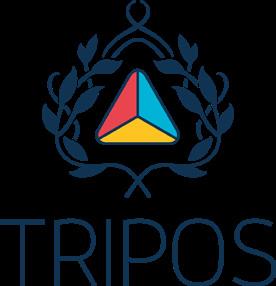

The first element, Curiositas, aims to foster intellectual curiosity and inquisitiveness about the world that extends beyond a student’s chosen subjects and to appreciate that knowledge has in itself an inherent value.
The second element, Civitas, aims to nurture the importance of service to community and to show commitment to a cause at a school, local or nation level.
The third element, Contas, aims to cultivate a student’s sense of challenge, to encourage them to endeavour and have the courage to reach beyond their current grasp.
For further details, please see Mr Ben Lacey, or email: b.lacey@rhsb.gdst.net
43
IB Subjects
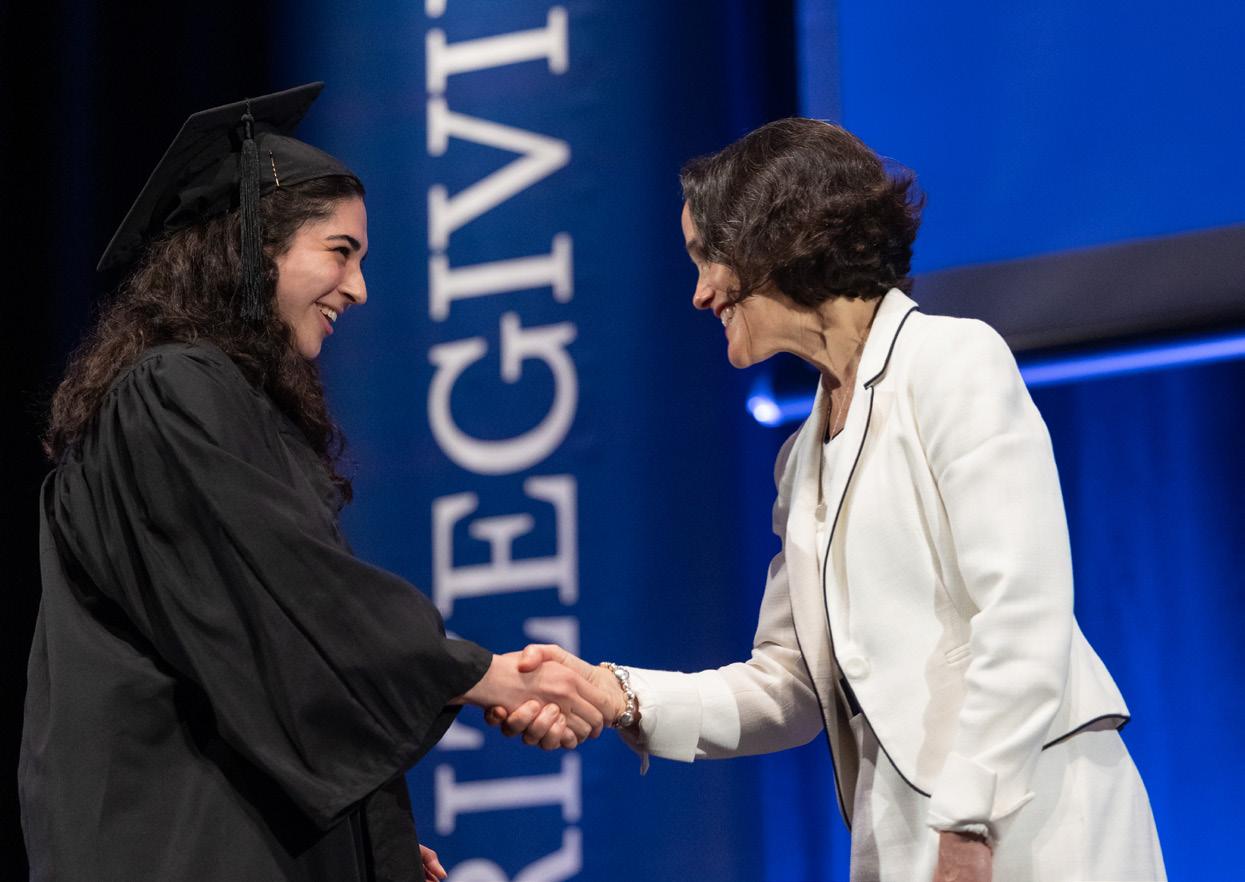
International Baccalaureate Diploma Programme
The International Baccalaureate Diploma Programme is an internationally recognised qualification, accepted by universities across the world. It has an holistic approach to Sixth Form education, with the student at the very centre. The key attributes developed during the course, which is assessed at the end of the two years, are represented in the IB Learner Profile, and feature strongly in the list of qualities expected by top universities and the CBI.
The IB is different from A Levels in two other key respects: every student must fulfil the requirements of all three elements of the Core; and all students study six subjects, three at Higher Level (HL) and three at Standard Level (SL).
The Core consists of Theory of Knowledge (TOK), an exploration of how you know what you know, which is embedded in the academic subjects; the Extended Essay (EE) which provides an opportunity to write a 4000 word research essay on a topic of particular interest to you; and Creativity, Activity and Service (CAS) which allows you to develop further skills through involvement in, and reflection, on a range of activities and projects outside the academic.
Of the six academic subjects, one subject must be taken from each of groups 1 – 5, but for the sixth subject there is flexibility: you may choose one of the Arts subjects (Visual Arts, Music, Theatre Studies) or you can choose a second subject from Groups 2 – 4, or a School Supported Mother Tongue.
Assessment in all subjects is by both internal assessment and by externally marked examinations. Subjects are scored on a 1-7 scale with 3 further points available from TOK and the Extended Essay combined. A Diploma can be obtained with a total of 24 points, but many students score well above this. The worldwide average is 30, and our average score in 2023 was 35.
What does the IB expect of its students?
That they will become IB learners and develop these essential qualities:
Enquirers
Knowledgeable Thinkers
Communicators
Principled
Open-minded Caring
Risk Takers
Balanced Reflective and who, above all, enjoy their studies.
45
“The IB puts you significantly ahead in the global race for the best universities.”
Lisa Freedman, editor of The Good Schools Guide
English A (Literature)
The course is divided into four assessed elements at Higher Level and three at Standard Level. For Higher Level, there is a single piece of coursework comprising a 1500-word essay. One major element of the IB is its focus on oral assessment and for both HL and SL you will lead a discussion on two extracts you have selected which reflect a global issue. The course ends with two examination papers, one involving the analysis of an unseen, the other comprising a comparison of two works. There is no coursework at SL.
Course outline
The IB Diploma offers you the chance to explore the diversity of world literature alongside more familiar works by British authors.
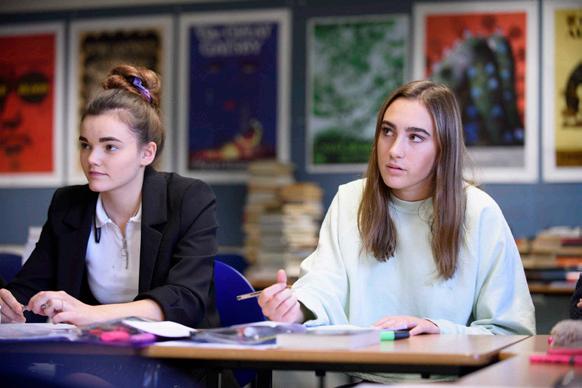
IB English has diversity at its core, offering you the chance to study a wide range of literature from across many different historical periods and regions of the world. You will explore texts in translation, whether that be a modern Japanese novel by Haruki Murakami, an Argentinian novella by Samantha Shweblin or a more well-known author such as Franz Kafka or Henrik Ibsen. Woven through the course, too, are several works written originally in English. We read and study less familiar texts such as Alice Munro’s short stories or Translations by Brian Friel, as well as more familiar works by Woolf, Larkin, Blake, Eliot or Shakespeare. The ethos of the course is inclusive, reflecting the breadth and richness of all that literature can mean and has meant through the ages.
You will record your responses to the works we study, building them into a Learner Portfolio on OneNote. Creativity and flexibility are central here: a response can be a mind map, a picture or a video recording as well as a written essay. You are encouraged to read the texts we study through a number of ‘lenses’, allowing them to be seen from different perspectives.
Central to the assessment structure of the IB English course is the freedom of choice you have as to what texts are assessed at what stage of the course. You can choose which books you want to use for the various assessments, the only rule being that you cannot use the same text twice. This flexibility, along with the fact that you will study significantly more texts than you are assessed on, gives the course its distinctive lightness of touch.
The course structure is as follows:
Higher Level coursework essay: 20%.
1500 words on a work of your own choice. HL only.
Individual Oral Assessment: 30% SL, 20% HL A 10 minute presentation on two extracts, one of which must be in translation, seen through the lens of a global issue, such a technology, power, justice or the environment.
Examination Paper 1: 35% SL, 35% HL. A written guided literary analysis of two unseen passages from a wide range of possible forms, including reportage, autobiography and travel writing. SL: you will choose one of the passages to analyse. HL: you must analyse both.
Examination Paper 2; Comparative Essay: 35% SL, 25% HL. The paper consists of four general questions focussing on the methods and concerns of literary texts. You will choose one question and use it to compare two of the works you have studied.
46 GROUP 1
Classical Languages (Latin)

SL – 32 marks: 1 hour 30 minute paper – 35% HL – 32 marks: 2 hour paper – 30%
Internal Assessment: students create a Research Dossier, which is an annotated collection of 7-9 primary source materials. This may include quotations from classical authors and/ or visual material such as pictures, diagrams, and photographs. Students make a prediction about the outcome of their own research question and assess the validity of their findings in a conclusion. Students may select any topic of particular interest ranging from the language, literature, history, religion, mythology, archaeology, art and architecture.
SL – 28 marks: coursework – 30%
HL – 28 marks: coursework – 20%
Course outline
The IB Diploma programme provides an opportunity to explore the language, literature and culture of ancient Rome. Through the study of classical texts and interaction with the culture of Greece and Rome the course:
• encourages an awareness and appreciation of the different perspectives of people from ancient cultures develops students’ appreciation of the literary provides opportunities for enjoyment, creativity and intellectual stimulation through individual research.
Paper 1: students engage with an un-adapted, unseen Latin passage with the support of a dictionary, demonstrating their understanding through a variety of tasks including comprehension and translation. HL students answer additional questions on a second, shorter unseen text.
SL – 30 marks: 1 hour 30 minute paper – 35% HL – 40 marks: 2 hour paper – 30%
Paper 2: In addition to reading two companion texts from a variety of authors, including Pliny the Younger, Tibullus and Catullus, SL students study one core text and HL students study two core texts: one verse and one prose. The core text authors are Vergil, Ovid, Livy and Cicero. The paper is assessed by answering short questions on a core text involving critical analysis of each author’s style, choice of vocabulary and figures of speech and writing an extended response to a prompt.
Composition: a piece of original Latin prose writing, of no more than 120 words, aiming to be accurate and varied in form. Students include an additional rationale to analyse their work and the influence of their sources and evaluate choices made in the drafting process. (HL only –25 marks – coursework – 20%)
Latin has had a major influence on the development of most modern European languages, while the rich and varied literatures of Greece and Rome have left their mark on almost every genre of modern writing. The study of Classical Languages gives important insights into the cultures that produced them and offers a bridge between the contemporary world and the civilisations of antiquity. Much contemporary thinking is still informed by the political, religious and legal principles of the Greek and Roman world and the course includes a study of their historical development and wider cultural achievements. Opportunities are also offered in the research section of the course for a study of their technological and artistic achievements, which remain an inspiration for artists, architects and civil engineers across the world. Latin is therefore an ideal choice of subject to combine with other courses such as English, History or Philosophy, Theatre or Visual Arts, Mathematics, Medicine and the Sciences.
The Classics Department provides many opportunities to attend external lectures, visit museums, exhibitions and local archaeological sites. Residential trips are also offered further afield from Hadrian’s Wall to Italy and Greece. Students are also encouraged to assist in the many classical activities and clubs running in both Senior and Prep School.
47 GROUP 2
French B
Modern linguists are in high demand because of the analytical and communication skills developed through learning a language. The presentations that you will be required to give in class, for example, will be good training for the workplace. Apart from the more obvious careers in interpreting, translating, and teaching, French students and graduates are highly sought after in the fields of business, banking, accountancy and the law.
Learning a language takes you beyond the classroom and into the way of life of another nation. French culture is so rich and varied. You will learn about French art, music, literature and cinema. There will be opportunities to read poetry and listen to songs, and even to write some of your own, if you wish.
Course outline
The IB Diploma course aims to develop oral and written skills in a range of contexts such as letters, speeches, newspaper articles, diaries, factual pieces, instructions, analytical essays and imaginative work.
The IB Diploma course aims to develop oral and written skills in a range of contexts such as letters, speeches, newspaper articles, diaries, factual pieces, instructions, analytical essays, and imaginative work.
You will study topics of global and personal relevance, the environment, the family, cultural diversity, health, tourism, conflict, politics, popular culture and the media. You will work towards developing an understanding of the structure of the language by close examination of texts. At Higher Level you will read two works of French literature.
Paper 1 (25%): Written French 1 hour 15 mins/30 marks .
Paper 2 (50%): Listening and Reading 1 hour 45 mins/65 marks.
HL
Paper 1 (25%): Written French 1 hour 30 mins/30 marks.
Paper 2 (50%): Listening and Reading 2 hours/65 marks.
There will be films to watch, perhaps as a backdrop to the literary texts under discussion. Of course, there will also be the chance to spend time in France through study visits – the best way to improve your spoken French and gain an in-depth understanding of contemporary French society.

“IB French is a world away from GCSE –the course is less defined by topic areas giving more freedom in your work. We really enjoy the variety of work; from film and music to literature and culture work. IB is great preparation for the use of any language ‘in the real world’ because of the tasks undertaken including the interactive oral and many different writing styles.“
“We like the way that a two-year course allows so much linguistic development before the examinations and have had a lot of fun on the course so far.”
48
SL
German B
Students are encouraged to use German in a wide range of contexts. Our audio materials are available on Teams and used regularly in lessons, as well as music, poetry and cinema. We have an extensive selection of films, which aid students to widen their experience and understanding of the culture of German speaking countries.
In Year 1 of the course and then at a more sophisticated level in Year 2, you will be building upon the skills learnt and developed at GCSE, becoming more proficient at listening, speaking, reading and writing. At Higher Level, an exciting and rewarding part of the course is the study of literature, which will give you insights into the German cultural psyche.
Course outline
The IB Diploma Course aims to develop oral and written skills in a range of contexts such as letters, emails, speeches, blogs, diaries, factual pieces, analytical essays and imaginative work. As a linguist, a huge array of career options is open to you.
German is the most widely spoken language in Europe with 110 million speakers. German speaking nations are at the forefront of design, environmental and scientific technology. German can be combined with many other subjects at university, allowing students to develop their linguistic and vocational skills simultaneously.

Paper 1 (25%) tests writing and involves showing one’s writing skills in the form of a text, for example a blog, email or speech, etc.
Paper 2 (50%) tests listening and reading comprehension skills.
Paper 3 (25%) is the oral. At Standard Level, you will have to speak about a picture and discuss topics studied. At Higher Level, this involves analysis of a literary extract, followed by general conversation.
The IB Diploma Course aims to develop oral and written skills in a range of contexts such as letters, emails, speeches, blogs, diaries, factual pieces, analytical essays and imaginative work. You will study topics of global and personal relevance; the environment, the family, cultural diversity, health, immigration, popular culture and the media.
By the end of the course, you will feel confident about speaking, writing and understanding German. In addition, you will have gained an insight into Germany, Switzerland and Austria, their people, language and culture. Taking German at IB level will give you the potential to pursue it at a higher level, possibly with another subject.
German IB will interest you if you enjoy communicating with others and wish to broaden your horizons. There is an emphasis on contemporary German-speaking culture and understanding what it means to live in a Germanspeaking society. If you like literature the Higher Level course will particularly appeal to you. A good memory for new words and an understanding of how grammar works are helpful and we will build on these skills. You will also have the opportunity to participate in a language visit to Berlin.
Former students have studied German and Business, Politics and International Development. The transferable skills of linguists make them highly sought after across all professions including banking, business, accounting, the media, travel and tourism. On average, languages graduates earn 8% more than their peers.
49
Mandarin B
Paper 1 (25%) tests writing and involves showing your writing skills in the form of a text, for example a blog, email or speech.
Paper 2 (50%) tests listening and reading comprehension skills.
Paper 3 (25%) is the oral. You will have to speak about a picture and discuss topics studied.
You will enjoy the Mandarin B course if you are passionate about exploring Chinese culture and language and have the commitment to developing your writing and speaking skills. You will be encouraged to communicate in Mandarin with the teacher within and beyond the class and you will practice with native Chinese speakers.
Course outline
The IB Diploma course aims to develop oral and written skills in a range of contexts such as letters, speeches, newspaper articles, diaries, factual pieces, instructions, analytical essays and imaginative work.
You will study topics of global and personal relevance; the environment, the family, cultural diversity, health, tourism, conflict, politics, popular culture and the media. You will work towards developing an understanding of the structure of the language by close examination of texts.
Learning to write Chinese characters promotes the creativity needed for a wide range of jobs. Moreover, to be able to communicate in a unique language like Mandarin makes you stand out from the crowd, providing more job opportunities. Learning Chinese can benefit your future career by expanding the potential range of employment for you. Students have gone on to study Mandarin alongside another discipline, or as a standalone subject.
An IB Diploma in Mandarin will help your university application stand out from the crowd.

50
Spanish B

Paper 1 (25%) tests writing and involves showing your writing skills in the form of a text, for example a blog, email or speech.
Paper 2 (50%) tests listening and reading comprehension skills.
Paper 3 (25%) is the oral. At Standard Level, you will have to speak about a picture and discuss topics studied. At Higher Level, this involves discussion of a literary extract, followed by general conversation.
Course outline
The IB Diploma course aims to develop oral and written skills in a range of contexts such as letters, speeches, newspaper articles, diaries, factual pieces, instructions, analytical essays and imaginative work.
You will study topics of global and personal relevance; the environment, the family, cultural diversity, health, tourism, conflict, politics, popular culture and the media. You will work towards developing an understanding of the structure of the language by close examination of texts. At Higher Level you will read two works of Spanish or Latin American literature.
You will enjoy studying Spanish in the IB programme if you are passionate about exploring the culture of the Spanish-speaking world and developing your written and spoken communication skills. By the end of the course, you will be able to speak Spanish with confidence and fluency and be able to use your language skills at a high level, for example in the workplace, at further study in higher education or on a placement year abroad as part of a degree course. The study of a novel and a play at Higher level is an exciting opportunity for students who enjoy literature.
Apart from all the jobs that use languages directly (travel, teaching, interpreting/ translating, business, politics, law) the other skills that you develop are directly transferable in other areas. These skills include communication, flexibility, global awareness, and a rigorous and detailed approach to study. Learning Spanish opens up huge possibilities for travel and business in Spain, South America and Central America as well as in some important areas in the USA. Former students have gone on to study course combinations such as Spanish and Arabic, Spanish and International Relations, Spanish and English and Spanish and Biology.
51
Language B Ab Initio
Starting from scratch, ab initio students cover all the basic grammar that they need. The prescribed topics can include the individual, education and work, shopping and services, food and drink, travel and free time, the environment and health and emergencies.
The option to study a Modern Foreign Ab Initio is open to students who have not previously studied an modern foreign language (MFL) (other than English.) This is an ideal course for students who wish to fulfil the requirements of the IB diploma and make rapid progress in a new language. The decision of which ab initio language will be offered will be dependent on student choice and the available expertise within the MFL department. Language option is likely to be Spanish, French or German.
Students taking Ab Initio Language B will develop the four key skill areas of listening, reading, speaking and writing using a variety of source material. You will learn through games and activities as well as using, pictures, text books and online materials. Studying languages in the Sixth Form is a great asset to your educational portfolio and is highly valued by universities and employers. By the end of this course, students will have attained an impressive level of language; somewhere between GCSE and A level.
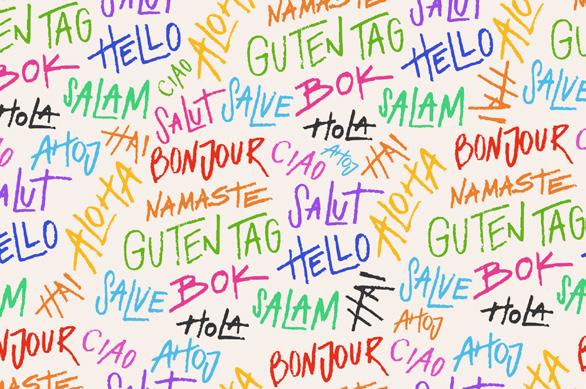
52 GROUP 2
Economics
Standard Level – 2 exam papers, each 40% and an Internal Assessment worth 20%
Higher Level – 3 exam papers totalling 80% of the final mark, and an Internal Assessment worth 20%.
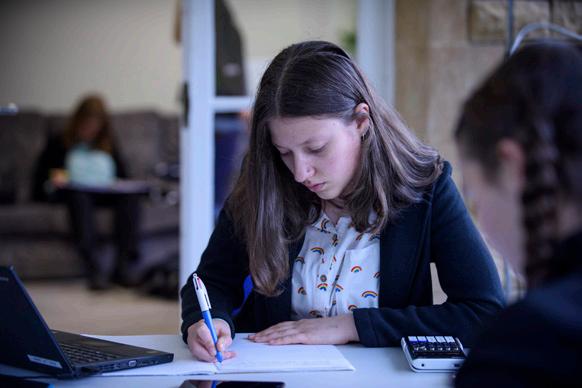
We have a responsibility to future generations to avoid major climate change, how can it be achieved at the lowest cost to the current generation? Should healthcare and education be the responsibility of individuals and families, or should the State provide these, financed out of taxation?
Course outline
The IB course will give you a sound grasp of the theory that economists use to explain events, predict what will happen, and advise governments on how to run the economy.
It’s not just about means, Economics is also concerned with ends. What sort of society and world do we want to live in? Is the global distribution of income and wealth ‘fair’? If not, what can and should be done about it?
There are 4 different sections of the IB Economics Course, Higher (HL) and Standard (SL) students cover all 4 sections, but HL students explore them in greater depth.
Section 1: Micro Economics – how markets work and why they fail.
Section 2: Macro Economics: what do governments want to achieve for the economy and how do they try to achieve these aims.
Section 3: International Economics
Why do countries trade? What are the costs and benefits?
Sections 4: Development Economics
Why are some countries richer than others? How can a country develop economically?
If these questions arouse your interest, there is a strong probability that you will enjoy the subject. The IB Economics course has a strong international dimension, and will give students a truly global perspective.
The subject will help you to understand much about the contemporary world, its challenges, conflicts and possibilities for improvement.
To succeed in Economics you need to have an enquiring mind, good analytical reasoning skills and sound basic numeracy.
You also need to keep abreast of what is happening in the world. This is what really brings the subject to life.
At its best, Economics can shed light in dark corners and make a difference to the world.
“Studying Economics has helped me to think about the news very differently. We look at normal news articles and find all of the Economics within it. There is much more Economics in our everyday life than we think, unless you are looking for it“
53 GROUP 3
Geography
Course assessment is based on 20% or 25% coursework for Standard or Higher level, with the rest based on two examination papers for Standard level and three for the higher level students. Should you decide to write your Extended Essay in Geography, the department will support you in developing your ideas, collecting data and doing research further into an issue of your choice.
Geography will develop your critical thinking skills and alongside the TOK course you will begin to question issues such as the politics behind map drawing and whether we should take action over environmental issues. You will leave the course with the strong sense of our international links and responsibilities which will be reinforced though your study of a foreign language.
Course outline
Geography gives an opportunity to really develop your “internationalism”. The IB Diploma course in Geography is divided into Higher and Standard Level. Higher Level and Standard Level students will study the core themes on population change, climate change and our use of food, energy and water resources.
There are various optional units we select from. Standard level will complete two of these while Higher level students will complete three. These include river processes and management including managing flood risk; studying the hazards associated with earthquakes and volcanic events; understanding the changes affecting urban areas.
Higher Level students will study a further unit of extension topics related to the processes of globalisation, migration and global development.
There is one coursework component for both Higher and Standard Level, which will be based around writing up the results of a field trip study. You will be able to apply your scientific method and mathematical skills in analysing fieldwork data.
The Geography department runs a fieldwork visit where we collect data which you will utilise within your coursework project. You will develop a range of analytical and computer mapping skills through this research.
Our department runs international trips to such places as Iceland, Morocco and Italy.
Geography is one of those subjects that you will find yourself using in so many ways in the future. These will range from simply having a better understanding of current affairs, to utilising your map work, research and communication skills in almost any career choice. Employers will be impressed by your range of geographical thinking skills. You will be highly suited to directly related careers and further study including environmental science research, town planning and overseas development work. Many also find work within fields of International Finance, Marketing, Public Relations and Journalism.
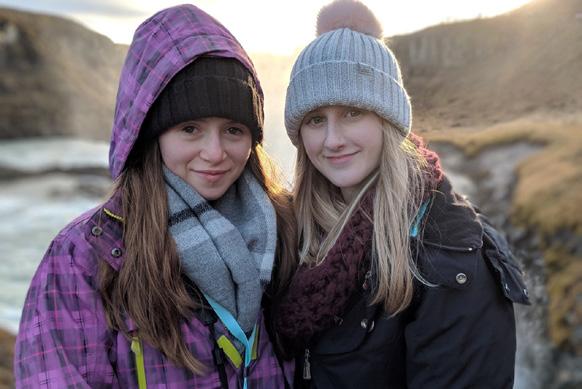
54 GROUP 3
Global Politics
At Standard Level there are 4 core units of study:
Power, sovereignty and international relations
Human Rights Development
Peace and Conflict
All students also undertake an engagement activity through which they study a political issue of interest. Students complement their experiential learning with more theoretical perspectives from research and submit a written report summarising their investigation. We will undertake this aspect of the course with our US partners the Baldwin School in Philadelphia.
Course outline
The study of Global Politics explores fundamental political concepts such as power, liberty and equality, in a range of contexts. It allows students to develop an understanding of the local, national, international and global dimensions of political activity, as well as allowing the opportunity to explore political issues affecting their own lives.
Global politics draws on a variety of disciplines in the social sciences and humanities. It helps students to understand abstract political concepts by grounding them in real world examples and case studies, it also invites comparison between such examples and case studies to ensure a transnational perspective. The course encourages dialogue and debate, nurturing the capacity to interpret competing and contestable claims.
Global Politics is sure to help students navigate our rapidly changing and increasingly interconnected world. Global Politics is an exciting, dynamic and relevant subject that provides the key skills for university such as research, seminar work and presentations.

Students are given the opportunity to take part in a joint project connecting Global Politics students at RHSB and at the Baldwin School in Philadelphia.
Year 13 student.
55 GROUP 3
“I love studying Politics, the course makes us think in fresh ways about what we read in the papers and the way it is presented to us online. It is impossible not to develop you critical thinking skills if you take this course!”
History
Paper 1: Move to Global War
This is a source-based examination that involves the evaluation of contemporary evidence and historians perspectives on two major case studies: Japanese expansion in East Asia and Italian/ German expansion in the 1930s.
Paper 2: Authoritarian States and Cold War
This essay based paper involves global comparisons. The Authoritarian States paper involves an in-depth study of dictatorial regimes. We study Mao’s China and compare and contrast it to Hitler’s Germany. For the Cold War we compare the impact on two countries, of two leaders and look in-depth at two crises from two different world regions.
Course outline
The study of History allows understanding of a rapidly changing world. Conflict and its resolution figures prominently in IB History studies. A sense of proportion and perspective will be provided and greater knowledge of different times and cultures will emerge.
The History IB course is a truly global course which extends the knowledge gained at GCSE level by looking at events from new global perspectives –including those of Japan and China. History will provide the vital underpinning for challenging careers in the 21st century and students frequently go on to study International Relations and other related disciplines at university.
We study Modern World History at both Standard and Higher Level. The Standard Level course involves two examined papers and an Internally Assessed essay. At Higher Level there is additional third examined paper

Paper 3 (Higher Level Only)
This is an essay based paper with a vast range of topic options enabling candidates to extend their Paper 2 knowledge to even greater depth. We also teach units on Imperial and Communist Russia. ‘
History is the gateway to many professional careers: law, journalism and the media, politics and the Civil Service. Academic careers, such as teaching in schools or universities and research fellowships, are also possibilities. The industry offers innumerable openings: historical sites, tours and retail.
Students are given the opportunity to attend external lectures and field trips and lead participation in our fortnightly History Film Club.
“I love studying IB HL History, the course covers so much breadth and allows exploration into History on a global level. It’s such an engaging and thoughtprovoking course that looks at everything from the fall of the Tsar’s, Hitler’s rise to power all the way to the Cold War. It encourages you to think independently and critically by evaluating different historical perspectives.”
Year 13 IB student.
56 GROUP 3
Philosophy
Human nature: Identity
The self and the other Consciousness
Personhood
Human Nature
Freewill and determinism
Optional themes: (SL choose one, and HL study both).
Political Philosophy (SL + HL)
Civil society, the state and government
Justice, freedom and equality
Rights: human and nonhuman rights, duties and responsibilities
Liberties, censorship and freedom of information
Course outline
The IB Philosophy specification has always been exciting and relevant, but the new updated specification has even more topical and current content. This is especially the case in the HL extension paper 3 – which requires students to consider the contribution that Philosophy can make to issues posed by technology (AI, driverless cars . . .) and the environment.
Philosophy takes a structured and questioning approach to some of the deepest and fundamental areas of life, asking challenging questions such as:
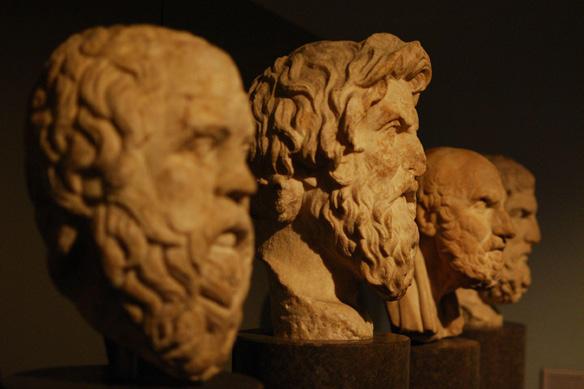
What is it to be human?
Do we have free will?
How should we respond to the issues that face us in the modern world?
These questions come from our everyday lives, and Philosophy provides the tools and skills for unpicking them.
Why should you do it? As another female philosopher said: “It seems to me that good philosophy will always have a place in the investigation of any matter of deep human importance, because of its commitment to clarity, to carefully drawn distinctions, to calm argument rather than prejudice and dogmatic assertion” (Martha Nussbaum: “Philosophical Interventions” (Reviews 1986-2011)”)
About the Course
Paper 1 covers two compulsory areas of study:
Core Theme: Being Human (both SL and HL)
Ethics (HL)
Ethical theories
Ethical language
Applied ethics: Biomedical ethics
Business Ethics
Distribution of wealth
Paper 2: Prescribed Philosophical text: (SL and HL)
Descartes: Meditations
Paper 3: Philosophy and Contemporary Issues (HL only)
This looks at the nature, function, meaning and methods of philosophy and how it applies to Technology (eg AI) and the Environment.
Internal assessment: (HL and SL)
Students select a piece of writing/film/image and write a philosophical analysis of it
The distinguishing feature of IB philosophy is the emphasis on ‘doing philosophy’ rather than just learning about it. The course will stimulate your intellectual curiosity and encourages you to examine both your own views and those of others. You are expected to investigate and explore the ideas for yourself. You will develop your own philosophical voice and to think for yourself. You will learn to scrutinise texts and arguments in order to analyse and evaluate them.
57 GROUP 3
Course outline
Students opting to study the IB programme will study Psychology in group 3 (Individuals and Societies). We will study the influence of biological, cognitive and sociocultural factors on behaviour.
The aim of the Psychology course is to encourage students to develop a sense of wonder about how the behaviour of other people can be explained using psychological theories.
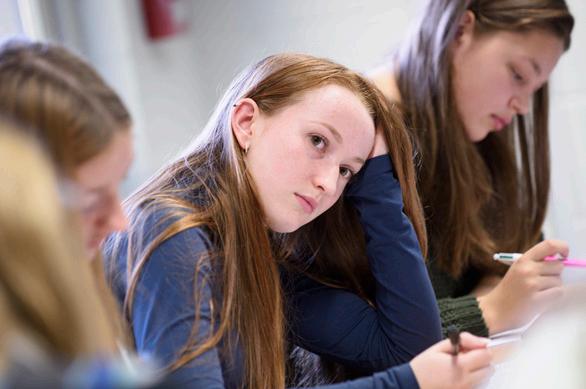
By examining research that relates to everyday issues and events, students will naturally become curious about themselves and the world they live in.
Psychology students will gain a knowledge and understanding of scientific methods and the theoretical underpinnings of the research. Students will develop their critical thinking skills by learning to analyse, interpret and evaluate scientific information gained from research.
Practical skills will be developed when students design and conduct their own research, find relevant sources to support their hypotheses, and present their findings in a report format. Students will become proficient at presenting their findings using descriptive and inferential statistics.
Students will develop an awareness of the cultural differences in behaviour when we explore multi-cultural research from individualistic and collectivistic cultures.
Core
The biological approach to understanding human behaviour.
The cognitive approach to understanding human behaviour.
The sociocultural approach to understanding human behaviour.
Standard Level is assessed as follows:
Paper 1 (50%) 2 hours.
Section A: three short answer questions on the core approaches (27 marks)
Section B: one essay from a choice of three on the core approaches (22 marks)
Paper 2 (25%) 1 hour.
One question from a choice of three on one option (22 marks)
Internal assessment (25%)
A report on an experimental study conducted by the student (22 marks)
Higher Level is assessed as follows:
Paper 1 (40%) 2 hours
Section A: three short answer questions on the core approaches (27 marks)
Section B: one essay from a choice of three on the core approaches (22 marks)
Paper 2 (20%) 2 hours
Two questions from a choice of three on one option (22 marks each) – Total 44 marks
Paper 3 (20%) 1 hour
Three short-answer questions form a list of six static questions on approaches to research (24 marks)
Internal assessment – 20%
A report on an experimental study conducted by the student (22 marks).
We encourage students to join the British Psychological Society and attend the Psychology Society which is run by the department. Students meet to discuss extra- curricular research, hold debates, take part in experiments and watch documentaries.
58 GROUP 3
Psychology
Biology
Paper 1B—Data-based questions (four questions that are syllabus related, addressing all themes)
(Total 55 marks) 36%
Paper 2 (1 hour and 30 minutes)
Section A—Data-based and short answer questions
Section B—Extended-response questions
(Total 50 marks) 44%
Internal assessment (IA) (10 hours) 20%
The internal assessment consists of one task: the scientific investigation.
This component is internally assessed by the teacher and externally moderated by the IB at the end of the course.
Biology is at the forefront of some of the biggest challenges facing us in the 21st century, from conservation of endangered species to overcoming antibiotic resistance and developing methods that can be used to increase crop growth for an evergrowing population. Biology allows you to question and challenge these issues in order to create a more sustainable and healthy future.
The IB Diploma course aims to develop a broad, general understanding of the principles of Biology.
The study of life makes progress through not only advances in techniques, but also pattern recognition, controlled experiments and collaboration between scientists. Unifying themes provide frameworks for interpretation and help us make sense of the living world: Form and function, Unity and diversity, Continuity and change, and Interaction and interdependence are four of the themes around which this biology syllabus is constructed.
The SL course provides students with a fundamental understanding of biology and experience of the associated skills. The HL course requires students to increase their knowledge and understanding of the subject, and so provides a solid foundation for further study at university level.
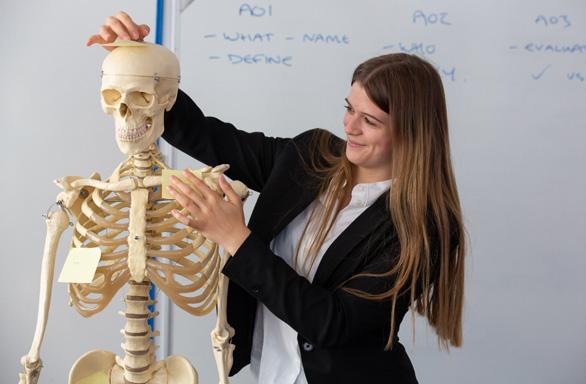
The SL course assessment outline
External assessment (3 hours) 80%
Paper 1 (1 hour and 30 minutes)
Paper 1A—Multiple-choice questions
(Total 24 marks)
The HL course assessment outline
External assessment (4 hours 30 minutes) 80%
Paper 1 (2 hours)
Paper 1A—Multiple-choice questions
Paper 1B—Data-based questions (four questions that are syllabus related, addressing all themes)
(Total 75 marks) 36%
Paper 2 (2 hour and 30 minutes)
Section A—Data-based and short answer questions
Section B—Extended-response questions
(Total 80 marks) 44%
Internal assessment (IA) (10 hours) 20%
The internal assessment consists of one task: the scientific investigation.
This component is internally assessed by the teacher and externally moderated by the IB at the end of the course.
(Total 24 marks)
There is a residential field trip in the spring/ summer term of year 12 in which students will put their understanding of ecosystems and human impacts into practice, further developing fieldwork techniques alongside experts in their field.
59 GROUP 4
Course outline
Chemistry is studied in three main branches: Physical, Organic and Inorganic.
Physical Chemistry considers how matter interacts, why chemical reactions happen and how they can be controlled. Organic Chemistry considers the study of carbon- containing compounds. There are an enormous number of organic compounds, many of which are essential to the processes of life. Inorganic Chemistry considers the elements of the Periodic Table and their compounds. The study of inorganic chemistry relies on patterns and predicting trends. The mathematical demands of the Higher Level course require confidence with numeracy.
The IB Diploma course contains 11 topics studied at Standard Level, with all of these extended at Additional Higher Level. These topics cover all three branches of Chemistry. The course is assessed by 2 papers at the end of the second year plus an Individual Investigation worth 20% of the final mark. In addition to the examined content you are required to complete a number of hours of practical work.
Chemistry is a subject of global impact. It has a profound effect on our planet, is involved at some level in almost every aspect of everyday life and plays a vital role in a technological society. The IB group 4 (science) courses aim, among other things, to provide you with opportunities for scientific study and creativity within a global context that will stimulate and challenge you. This will enable you to apply and use a body of knowledge, methods
and techniques that characterise modern science and technology. In addition to learning concepts, developing manipulative skills and powers of analysis, you will become aware of the worldwide moral, social, environmental and economic implications of the developments of science. In this way you will be equipped for further study, or to be scientifically literate, responsible global citizens.
There are many opportunities to get involved in additional activities. Why not come along to the Sixth Form Science Society, help out with the KS3 Science Club, or offer to Mentor a younger student in their studies (which can count towards CAS hours). For the potential medics and vets we run a regular Medical Society for you to meet, discuss experiences and debate current topics with fellow students aiming for similar courses.
In addition to your classroom studies you will need to complete an Individual Investigation on a topic of your choice. You will also need to complete a 4000 word Extended Essay. If you choose to write about a Chemistry related subject, you will also be expected to carry out some form of practical/ analytical work.
You will undertake a 10 hour project with students studying other Group 4 subjects. This will provide you with an opportunity to collaborate with others on a joint task.
There are many opportunities to get involved in additional activities. Why not come along to the Sixth Form Science Society, help out with the KS3 Science Club or offer to mentor a younger student in their studies? There are opportunities to extend knowledge and skills by competing in the RSC Chemistry Olympiad (in Year 12 and 13) as well as taking part in the Cambridge Chemistry Challenge in Year 12.
We run a Medical Society for you to meet, discuss and debate the requirements of these careers. We have visiting speakers who present their research and talk about careers such as Pharmacy. Many students subscribe to Chemistry Review for extra reading. We also run a visit to Bath University when we analyse aspirin that you will synthesize in your lessons. You will use the state of the art spectroscopy machines that they have at the university.
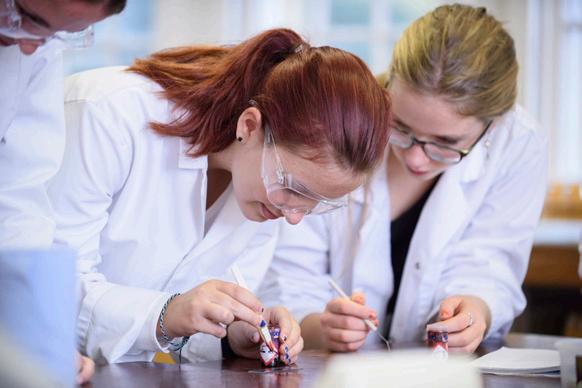
60 GROUP 4
Chemistry
Computer Science
Four course options are available: Databases, Modelling and simulation, Web science, and Object Oriented Programming using Java and will be negotiated with the students taking the course in any particular year.
External Assessment Paper 1: Compulsory content Paper 2: Option topic
Paper 3: Case study (Higher Level only)
Internal Assessment: 30%
A 30 hour programming project which is the development of a computational solution plus 10 hours dedicated to the group 4 project.
Course outline
The IB Computer Science course is engaging, accessible, inspiring and rigorous.
Girls’ schools who offer post-16 Computer Science are rare. We are proud to offer this increasingly popular subject to enable girls to compete equally in a technical world. The content in the standard level course is of a similar level to GCSE but with additional IT systems material. It is suitable for those who have done GCSE or for those who have not taken the subject before but show a keen interest in coding or have some aptitude in foreign languages.
The IB Computer Science course is engaging, accessible, inspiring and rigorous. It requires an understanding of the fundamental concepts of computational thinking as well as knowledge of how computers and other digital devices operate.

It has the following characteristics:
Draws on a wide spectrum of knowledge. Enables and empowers innovation, exploration and the acquisition of further knowledge. Interacts with and influences cultures, society and how individuals and societies behave. Raises ethical issues.
Practical programming experience will be an essential element of developing higher-level thinking skills; this will be assessed as a part of the internal assessment.
Extra-curricular opportunities include national competitions such as the BEBRAS computational thinking competition and the National Cipher Challenge. Helping out with coding and STEM clubs for younger years is also encouraged and can contribute towards the CAS program. It may also be possible to arrange work experience in local tech companies, during the summer holidays at the end of Year 12.
For those wishing to pursue the subject at university, the IB course is a fantastic introduction and along with Higher Level Mathematics, will allow students to get to top universities.
Several universities are now also offering fully sponsored degrees and there are many degree apprenticeships available with organisations such as GCHQ, Facebook, Accenture and the BBC. Students interested in careers in other subjects can still benefit from opting for Computer Science, as technology pervades the modern workplace, and those who understand how these systems work will have the edge. It also demonstrates high levels of logic and problem solving skills.
61 GROUP 4
‘IB Computer Science really added to my portfolio of subjects and allowed me to pursue it further at university level. The problem solving culture in the lessons really suited my nature and helped me outside of the subject’.
(former student)
Course outline
This course is for students who want to learn how to solve complex problems and have a strong interest in the world around them. Physics will teach you to analyse systems and quantify their effects. The skills you develop as a Physicist will be transferrable when approaching any novel scenario. For example, that might be managing an aspect of the energy transition, developing new sustainable technologies, or understanding the behaviour of our financial markets.
There six major parts to the course:
Space, time and motion
The particulate nature of matter
Wave behaviour
Fields
Nuclear and quantum physics

Experimental programme
If you study to Higher Level, you will cover the material in more detail as well as some more difficult aspects of these topics.
Practical work will be carried out throughout the course, and you will also carry out an individual scientific investigation which will take about 10 hours. This will be formally assessed and contribute to your overall subject mark.
If you choose to carry out the extended essay in this subject you can carry out a further piece of experimental research into any area that interests you, once approved by your teacher.
Employers of all kinds, rather than requiring specific subject knowledge, value core skills that are learnt through the Physics course. This includes selfmotivation, concise thinking and communication, a willingness to learn from mistakes and a sense of the bigger picture. When the salaries of students were compared six years after leaving school, Physics and Maths students occupied the highest earning positions.
Physics has been named as a “facilitating subject” by the Russell Group of universities, which means it can be useful for getting onto a wide range of university courses.
If you are interested in pursuing Medicine, Engineering, Architecture (and of course Physics) at university, Physics IB is highly desirable. In addition, many physicists also combine their work with the other sciences to study things like meteorology (the atmosphere) and geophysics (the structure of the earth).
“Physics asks interesting questions about the nature of our Universe. I really like the fact that the subject combines this philosophical aspect with the neat logical mathematical side.”
62 GROUP 4
Physics
Design Technology
All SL and HL student study:
Human factors and ergonomics. Resource management and sustainable production.
Modelling.
Raw material to final product.
Innovation and design.
Classic design.
HL students examine four further topics designed to extend and deepen their understanding of the subject. The four additional higher level topics aim to introduce aspects of innovation:
User-centred design (UCD).
Sustainability.
Innovation and markets.
Course outline
Studying Design Technology within the IB diploma program aims to develop internationally-minded people whose enhanced understanding of design and the technological world can facilitate our shared guardianship of the planet.
DT at IB focuses on analysis, design development, synthesis and evaluation. The creative tension between theory and practice is what characterises design technology within the Diploma Program sciences subject group.
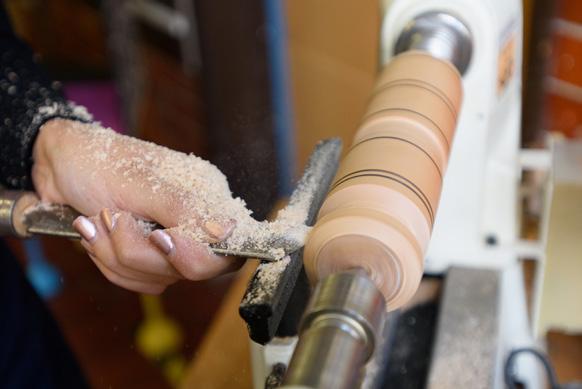
Design Technology requires the use of the design cycle as a tool, which provides the methodology used to structure the inquiry and analysis of problems, the development of feasible solutions, and the testing and evaluation of the solution. A solution can be defined as a model, prototype, product or system that students have developed independently.
DT achieves a high level of design literacy by enabling students to develop critical-thinking and design skills, which they can apply in a practical context. While designing may take various forms, it will involve the selective application of knowledge within an ethical framework.
A well-planned design programme enables students to develop practical skills alongside strategies for creative, critical thinking.
Commercial production.
All SL and HL students complete a design project (40%) as an internal assessment task. This project allows students to demonstrate their investigative, analytical, design thinking, design development, prototyping, testing and evaluation skills and mirrors the design processes used across the various industries that integrate design practice.
At SL, the design project requires students to identify a problem and develop a solution. It is assessed against four common criteria:
Analysis of a design opportunity.
Conceptual design.
Development of a detailed design.
Testing and evaluation.
At HL, the design project is assessed against two additional criteria:
Detailed development of a commercial
production.
Making choices for commercial production
The SL course is assessed through a multiple choice paper (Paper 1), a core paper, which consists of a short response and extended answer questions (Paper 2), and the internal assessment design project.
At HL, paper 1 has more questions, and students answer an additional paper (Paper 3) consisting of three structured questions based on the HL extension material, one of which is based on a case study.
63 GROUP 4
Mathematics
There is more attention to mathematical modelling, calculating, and interpreting statistics, the use of matrices for solving systems of equations, and a study of how arithmetic and geometric sequences can help in the repayment of loans.
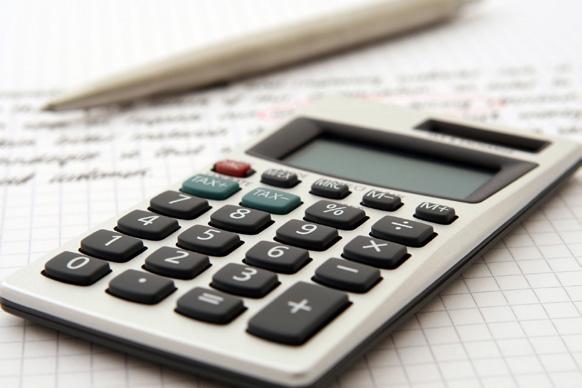
Also, the use of logarithms, statistical hypothesis testing and solution of differential equations in context to solve everyday problems plays a prominent role.
All courses require the use of Technology, and students will be required to purchase a Graphical Display Calculator, the exact model to be decided nearer the start of the course.
Course outline
The Mathematics IB curriculum is divided into two parallel strands: Applications and Interpretation, and Analysis and Approaches. At RHSB, we offer Applications and Interpretation at Standard Level, and Analysis and Approaches at both Higher Level and Standard Level.
Students would opt for the Analysis and Approaches course if they are a scientist or a social scientist using Mathematics to assist them in the interpretation of experimental results.
Analysis and Approaches SL would suit those going into degrees that have a mathematical element, but are not purely based on Maths, such as Medicine, Pure Sciences, and combined science.
Analysis and Approaches HL is a challenging course which would suit the student wishing to go on to study a degree course with a strong focus on Mathematics. It focuses on the more abstract concepts needed to take Maths further.
There will be some financial applications as well as the development of proofs in algebra and trigonometry. The Calculus is taken to a very high level, including the study of continuity, limits and L’Hopital’s Rule.
The Applications and Interpretation course has a significant amount of Pure Maths content but has a greater focus on how Mathematics can be applied in real life.
A good training in post GCSE Maths is recommended or essential in careers like Engineering, Economics, Operations research, Accountancy, Environmental Science, Finance, Insurance, Software design, Social Planning, Medicinal trials, Aviation, Construction, Design, Veterinary science, Medicine, and Risk analyst, Programmer, among others.
Pursuing your own paths of enquiry in the portfolio/ project will strengthen your ability to present mathematical arguments logically and succinctly. Employers love candidates who are highly numerate.
We encourage students to engage in the wider applications of Mathematics, and in the past have organised trips to the Maths-In-Action lectures in London, and to the Maths Inspiration talks in Cardiff and Bristol.
As a member of the Advanced Mathematics Support Programme we are up to date on local opportunities to engage in activities and lectures organised by the Universities of Bristol and Bath.
The Senior Maths Challenge is always fully supported by our students, and we have a record of success in the regional finals of the Senior Team Maths Challenge.
“Maths has been a great help in Physics. Learning to follow things logically helps me form arguments in my essay-writing subjects.”
64 GROUP 5
Music
Musical Investigation (20%)
A written media script of around 2000 words investigating the relationship between two musical genres. Recent examples chosen by students include a comparison of Steve Reich’s minimalist piece Drumming with a Ugandan percussion piece, and of Miles Davis’ So What with the Indian piece Rag Bhairav.
One of the following options: (50%)
Solo Performance – A solo recital of approximately 15 minutes.
Course outline
IB Music is an exciting and broad syllabus and is suitable for all those who enjoy listening to and playing music of any sort and are keen to learn more about music and how it works. The key areas of focus are performing, composing and history/ analysis (at SL this depends on which options are chosen).
The scope of the course is very wide so much of the lesson time is spent investigating the widest possible variety of music from different time periods and places, whilst focusing on particular areas of interest amongst those in the group. The course involves less practical application of music theory than A Level, though a working knowledge of basic theory is essential.
Standard Level Listening Paper (30%)
This is a 2¼ hour exam paper at the end of the course, and is the main focus for much of the lesson time. Students study two set works in detail for this exam. They are usually very contrasting works, one of which is a substantial piece of classical music. Students are asked to place them in their musical and historical context and will need to be able to analyse and compare them in detail. The remainder of the exam is a number of short extracts of music from different time periods and places are played and students will be asked to comment on them. Some may be known to them, but most will not be! It is essential to build up analytical skills during the course to deal with any music that arises.
Group Performance – A recital as a member of an ensemble lasting between 15 and 30 minutes. Creating – Two contrasting compositions with recordings and a written statement.
Higher Level
Sections (i) and (ii) of Higher Level are the same as the corresponding sections of Standard Level, except that Higher Level candidates must answer extra questions in the listening exam. There are no choices at Higher Level – both solo performance and composition are compulsory.
Solo Performing (25%): A solo recital of approximately 20 minutes. Creating (25%): Three contrasting compositions with recordings and a written statement.
Coursework
SL: Musical investigation and the performance/ composition option are completed as coursework. HL: Musical investigation, solo performance and composition are coursework. Internally assessed: 50%, externally assessed: 50%
Music offers a wide range of career paths, from all kinds of performance work to composing for TV/film/radio, access to the performing arts and theatre, journalism and research, teaching, music therapy, instrument making, studio technology and much more. There are more jobs than ever in music business related areas, such as careers in digital marketing, social media, PR, technology, label services, ticketing and merchandising.
There are opportunities to participate in a range of extra-curricular musical activities that will enhance your general and practical musicianship skills.

65 GROUP 6
Sport, Exercise and Health Sciences (SEHS)
Course outline
The course is assessed across three written papers and an Internal Assessment.
Paper 1 (20%): Is a multiple-choice paper with a combination of core modules taught throughout Year 1 and 2.
Paper 2 (35%): Is made up of numerous short answer questions and one or two extended answer questions, where the student will have to analyse data presented.
Paper 3 (25%): Several short answer questions focused on the Option Modules within the course.
Sports, exercise and health science (SEHS) is an experimental science course combining academic study with practical and investigative skills through the internal assessment. SEHS explores the science underpinning human physical performance and provides the opportunity to apply these principles. The course incorporates the disciplines of anatomy and physiology, biomechanics, psychology and nutrition.
Both the SL and HL have a common core syllabus, internal assessment scheme, and overlapping elements in the options studied. While the skills and activities are common to all students, HL requires additional core material and topics within the options.
Students cover a range of core and option topics and carry out practical (experimental) investigations at Bath University’s laboratory and field facilities. The course offers a deeper understanding of the issues related to sports, exercise and health in the 21st century and addresses the international dimension and ethics related to both the individual and global context.
SEHS is good preparation for courses in higher or further education related to physiotherapy, sports nutrition, psychology, physical education, as well as a pathway into the health and fitness industry.
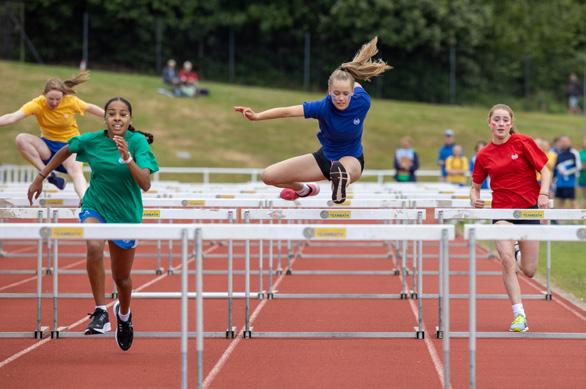
66 GROUP 4
Course outline
The focus of this exciting course is Theatre as a form of creative and cultural enquiry.
IB Theatre gives you the opportunity to make theatre as a creator, designer, director and performer. Over the course of the two years you will be expected to research and develop your understanding of a range of world theatre and to experiment with different ways of presenting work to an audience.
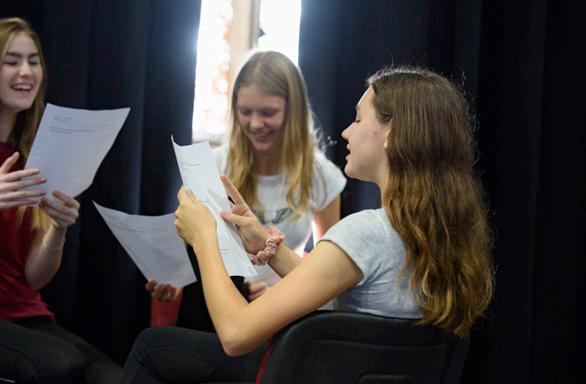
Assessment: 100% coursework
All students complete three pieces of coursework, with Higher Level students completing a fourth coursework piece. There is no final examination.
All students complete the following tasks: Director’s notebook: Students choose a published play text and develop ideas regarding how it might be staged for an audience. Research presentation: Students plan and deliver an individual presentation (15 minutes maximum) to their peers in which they outline and physically demonstrate their research into a convention of a theatre tradition they have not previously studied.
Collaborative theatre project: Students collaborate and create and present an original piece of theatre (lasting 13 to 15 minutes) for and to a specified target audience, created from a starting point of their choice.
Higher Level students also complete the following task:
Solo theatre piece: Students research a chosen theatre theorist. They identify an aspect(s) of the theorist’s ideas and create and present a solo theatre piece (4-8 minutes) based on this aspect(s) of theory.
As with A Level Theatre Studies, the IB course opens doors into the world of Theatre, Film, Broadcasting and Digital Media. The student will gain a wide understanding of the different skills involved and also gain intellectual comprehension of how ‘action research’ impacts on development in these converging spheres. Other professions relying on confident use of interpersonal skillssuch as Law, Advertising, Museum Curating, Teaching and Politics- are well served by the groundwork of completing this expansive course. The level of awareness of Internationalism within contextualised cultural appreciation also leads naturally to careers in the Civil Service, Foreign Office or International Business.
Students are involved in a wide range of creative activities. Alongside the numerous visits organised to local and London theatres, the department offers the IB student the opportunity to participate as a mentor and leader in whole-school and Sixth Form performances. Recent productions include: ‘’The House of Bernarda Alba’; ‘Peter Pan’ ‘Stepping Out’; ‘The Crucible’; ‘Antigone’ and ‘Oliver!’
67 GROUP 6
Theatre
“It’s a qualification that’s recognised throughout the world.”
Visual Arts
The Art Department boasts a variety of media, large spaces to work in and excess of inspiration. Students can fully embrace their topics, with a library and computers within the department. All lessons are taught in the Art school, which houses four professional working studios, an art library, facilities for printmaking and sculpture, photography and lens-based media.
Course outline
The IB Diploma course offers students an ideal opportunity to discover Art.
We follow a Fine Art programme which allows students to develop their work in a number of areas – especially focusing on current fine art practice. There is, of course, an international awareness that should be developed through such a programme of study.
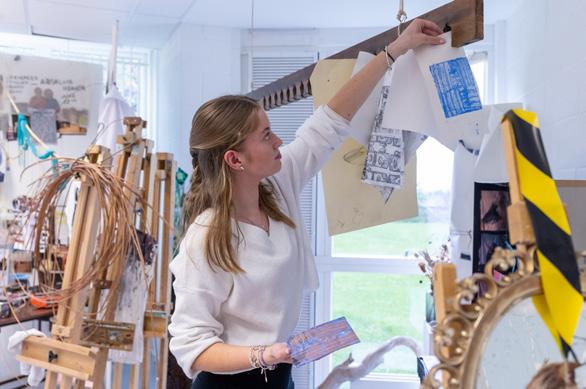
The IB Visual Arts Programme consists of three distinct areas of study: Exhibition 40%, Process Portfolio 40%, Comparative Study 20%
There are a number of career options if you choose to study Art and Design. The normal route is, on completion of your IB Diploma, to complete a foundation course at Art School. Then you specialise in your chosen area, be it fashion, photography, graphic design, animation, games design etc. You can also go on to study History of Art. You could be a painter. You could work in television or web design. You could work within the fashion industry. You could work within advertising or the film industry. There is also architecture and interior design.
The department offers opportunities to visit galleries abroad, with a biennial visit to New York and trips in the UK to events like the Frieze Fair and other major galleries.
As teaching staff, we are all practising artists who believe very strongly in the value of Art in our society and how it can enrich one’s life. We endeavour to develop a working environment where students feel secure enough to develop their own ideas, where they can be brave in their experimentation.
68
6
GROUP
Creativity, Activity and Service
Importance of CAS
CAS focuses you on the core of the IB educational philosophy: your development as a whole person. Your activities, freely chosen, will enable you to appreciate the potential of people by pushing your own personal growth and helping others with theirs; to become aware of humanitarian issues in the world and the ethical responsibilities you have as a global citizen; to discover more about your own talents; to develop greater autonomy and to enjoy yourself and others as human beings.
Variety of Activities
Course outline
Creativity, Activity and Service (CAS) is at the centre of the IB Diploma.
C – Creativity
A – Activity
S – Service
It provides an opportunity for you to follow talents, hobbies and interests outside the classroom and to develop many other skills which are valuable to life beyond school. It is not taught, though some school time is dedicated to CAS activities.
While CAS is not formally assessed in the sense of examinations, in order to obtain a Diploma you do need to fulfil the requirements of three Creativity, three Activity and three Service activities during the two years of the course.
You also pursue one or more long term projects such as the Red Cross International Ambassadors, the Crane Academy Team, or working outside school for a charity. Assessment is through the reflections you engage in before, during and after each activity.
A CAS log or journal is essential so that you monitor your own learning in such areas as ethical and global awareness, collaboration and perseverance and assess how and in what ways you have been able to help others.
While you will need to develop initiative and find activities of your own outside school, there is a wealth of activities offered within school. As indicated above, it is essential to undertake at least one project, combining two or more of the elements, but in addition you can do:
Yoga (A)
Ceramic and Pottery (C)
Rock Climbing (A)
Singing in a Choir (C)
Editing the school magazine or the Sixth Form Magazine (C)
Coaching a football team (A)
Training for and running a half marathon (A)
Participating in a school Drama production (C)
Helping a child learn to read (C/S)
Helping an elderly person keep their independence (C/A/S)
MUN (C)
Dance (C/A)
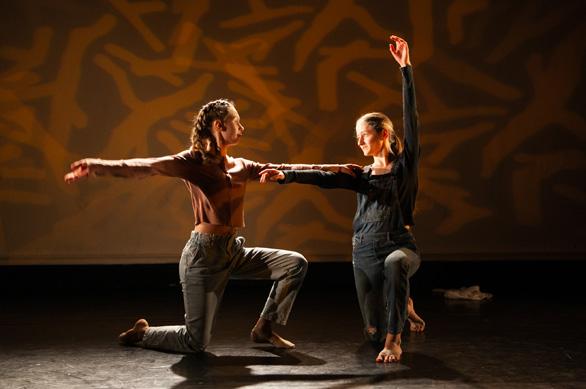
Debating (C)
Participating in Race for Life (A/S)
Duke of Edinburgh Award Expedition (A)
Young Enterprise (C)
Supporting our partner schools The Crane Academy (Kenya) or Keo Ropov Village School (Cambodia) (C/A/S) and more.
69
“I was able to meet some of the most special people in my life and to more clearly define my values and future goals.”
“I felt like I was physically doing something to help people in need.”
The Extended Essay
Once you have chosen your subject, you receive a supervisor and work together with her/him to narrow down your topic to one that can be handled thoroughly in 4000 words.
Over a period of approximately twelve months, ending at the very start of Year 13, you work through the various stages of research and creation: developing your thesis making notes and learning how to reference properly gathering evidence revising your thesis in the light of the evidence drafting your essay discussing the draft with your supervisor writing a final essay.
Course outline
Central to the aims and philosophy of the IB, and the element perhaps most valued by the universities, is the research project, called the Extended Essay.
Central to the aims and philosophy of the IB, and the element perhaps most valued by the universities, is the research project, called the Extended Essay.
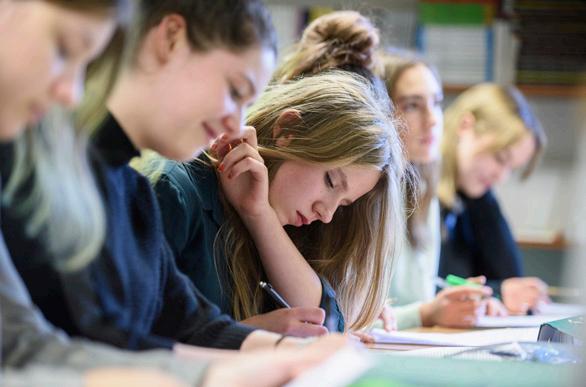
Soon after your entry into the Diploma Programme you will choose a subject which you would like to pursue to a deeper level.
Examples of Extended Essays written by IB students at the Royal High School are:
English – To what extent do Thomas Hardy (in Tess of the d’Urbervilles) and Angela Carter (in Nights at the Circus) explore the conventional portrayal of late Victorian woman?
This does not have to be one of the six academic subjects which you have chosen to study, but does need to be something about which you feel passionately and can write in depth.
Human Rights in France – Une analyse des droits de l’homme relatives á l’interdiction du port du voile intégral en France.
At the very end, you will also have a viva (an oral examination) with your supervisor. When you have finished.
You will be prepared for any research work that a university might present to you, either as an undergraduate or a post-graduate, and you are therefore extremely well-equipped for the next stage in your education.
Biology – Is the diving reflex in humans an evolutionary relic or a physiological adaption? History – To what extent were the Western allies justified in their reaction to the erection of the Berlin wall?
World Studies – How did street art in black South African communities help to change and transform disadvantaged communities during apartheid?
Chemistry – How do the storage conditions of kiwi fruit affect their vitamin C content? Physics – What is the relationship between wind-induced oscillation and the dimensions of a suspended bridge?
Visual Arts – How does Diane Arbus expose the extraordinary amongst the everyday and the familiar in the bizarre?
Film – How much are the films of Pedro Almodovar a triumph of style over substance?
70
Theory of Knowledge
During the second year students look in more depth at various Areas of Knowledge to assess how knowledge claims work in their different subject areas. These include Natural Sciences, Human Sciences, Mathematics, History and the Arts. This leads to the second assessment, the TOK essay chosen by the student from titles prescribed by the IB and supported by interactions with a supervisor. There is no such thing as a typical TOK lesson but past topics have included: an attempt to disprove the claim that Paul the Octopus knew the results of matches in the World Cup in South Africa, critical discussions of animal rights, conspiracy theories, and an investigation into whether bilingual people have access to greater knowledge than those who only speak the majority language.
Course outline
This highly-regarded critical thinking course is one of the unique features of the IB diploma. It means that all IB students have engaged with deeper questions about ‘how we know?’ from a variety of angles and subject areas. The course puts the learning from students’ individual subjects under critical scrutiny in a real-world context. It involves a lot of discussion and is an excellent preparation for university as well as being a lot of fun!
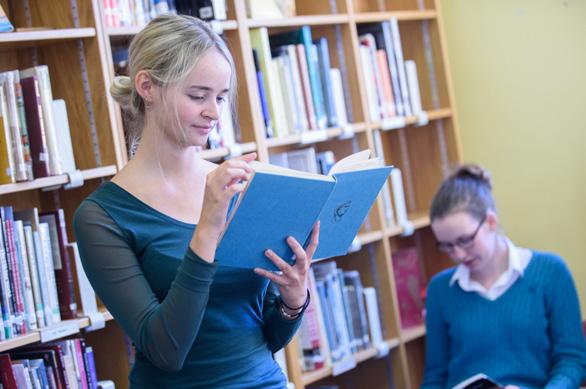
In the first year students begin by looking at the relationship between knowledge and those who claim to know it. What different types of knowledge are there? How is this gained, and what constitutes convincing proof?
We then move on to consider themes including Knowledge and Politics, Knowledge and Technology and Knowledge and Religion. From these investigations students put together their first assessment task: a virtual exhibition of three ‘objects’ based around a prompt. Examples of these prompts include: ‘Who owns knowledge?’, ‘How does the way that we organise knowledge affect what we know?’, or ‘What makes a good explanation?’ Students have really enjoyed this new and innovative form of assessment.
Theory of Knowledge challenges students to question the bases of knowledge, to be aware of bias and to develop a personal way of thinking based on analysis of evidence expressed in rational argument.
Theory of Knowledge is the key element in the IB’s educational philosophy. It unifies and transcends the academic subjects, encouraging appreciation of other cultural perspectives and the development of a coherent approach to learning. Many IB students have commented that Theory of Knowledge is the most fascinating part of the IB Diploma because it draws learning and experience together.
Theory of Knowledge provides students with additional thinking skills and is highly regarded by university admissions tutors. As Howard Gardner, leading Harvard educational psychologist put it, Theory of Knowledge helps students to “think critically, synthesize knowledge, reflect on their own thought processes and get their feet wet in interdisciplinary thinking.”
71
Core Sixth Form Subjects
For those wishing to focus on physical activity and maintaining a healthy, active lifestyle, we offer the following physical activities: fitnessbased classes, Zumba, strength and conditioning, badminton, dodgeball, tennis, rugby, rounders, as well as participating in the above sports in a recreational environment.
For more information, contact the Director of Sport, Miss Heidi Baber: h.baber@rhsb. gdst.net.
RHSE – ‘Education for Life’
The RHSE programme, which runs for an hour a fortnight, ensures that students engage in considering the wellbeing and safety of themselves and society.
Sport and Physical Education
Sport and physical activity provide important balance to the rigorous academic schedule at the Royal High School. The aim of the Sixth Form sports and physical activity programme is to provide a range of opportunities for all students so they can improve their fitness, health and wellbeing.
We want students to leave the Sixth Form feeling confident, competent and to continue to pursue sport and or physical activity into adulthood.

Students have a timetabled games afternoon per week, whereby they participate in a range of sports or physical activities.
For those interested in competitive sports and representing the school, we offer teams and competitions in the following sports: hockey, cross country, netball, swimming, athletics, cricket and tennis.
It fosters the values of respect and tolerance that make for healthy relationships and communities.
We often invite outside speakers from business and industry and from our alumnae network, to present to the students.
These cover a range of topics including:
— Career topics
— Interview and presentation skills
— Leadership skills
— Communications skills
— Online profiles
— Working with charities
We also look to develop first aid awareness, wellwoman issues, relationships, drugs and alcohol and finance.
72
Leadership Opportunities
The Prefect team works alongside the Head of Sixth Form and the Deputy Head of Sixth Form, helping with the daily running of the Sixth Form, event management, public relations and ensuring that all students are welcomed and supported.
Mentors are each allocated a Key Stage 3 tutor group to support. They work with the tutors to deliver tutor sessions and offer guidance to students within the tutor group.
They will receive mentoring training so that they can work with younger students, offering guidance and support.
The application process for the Sixth Form Leadership Team takes place in the Spring Term. Students who are interested in becoming a Prefect or Mentor submit an application letter and are interviewed.
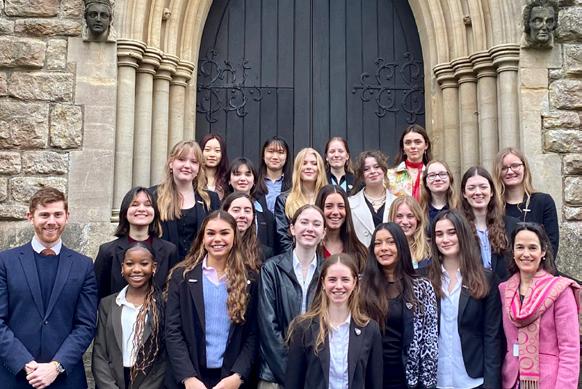
Sixth Form Leadership Team: Head Girl
Deputy Head Girls (2) Prefects (8) Sport Prefect
Key Stage 3 Mentors (12)
The experience of holding a position of responsibility develops vital skills such as organisation, public-speaking and teamwork. It also offers useful insight into how a team functions in order to mobilise support and create enthusiasm for different events and initiatives. Sixth Form Leaders will be expected to be proactive, creating ideas independently while also displaying tact, discretion and responsibility. Members of the Leadership team are invited to attend the GDST Summit which takes place in London, in September.
73
Results
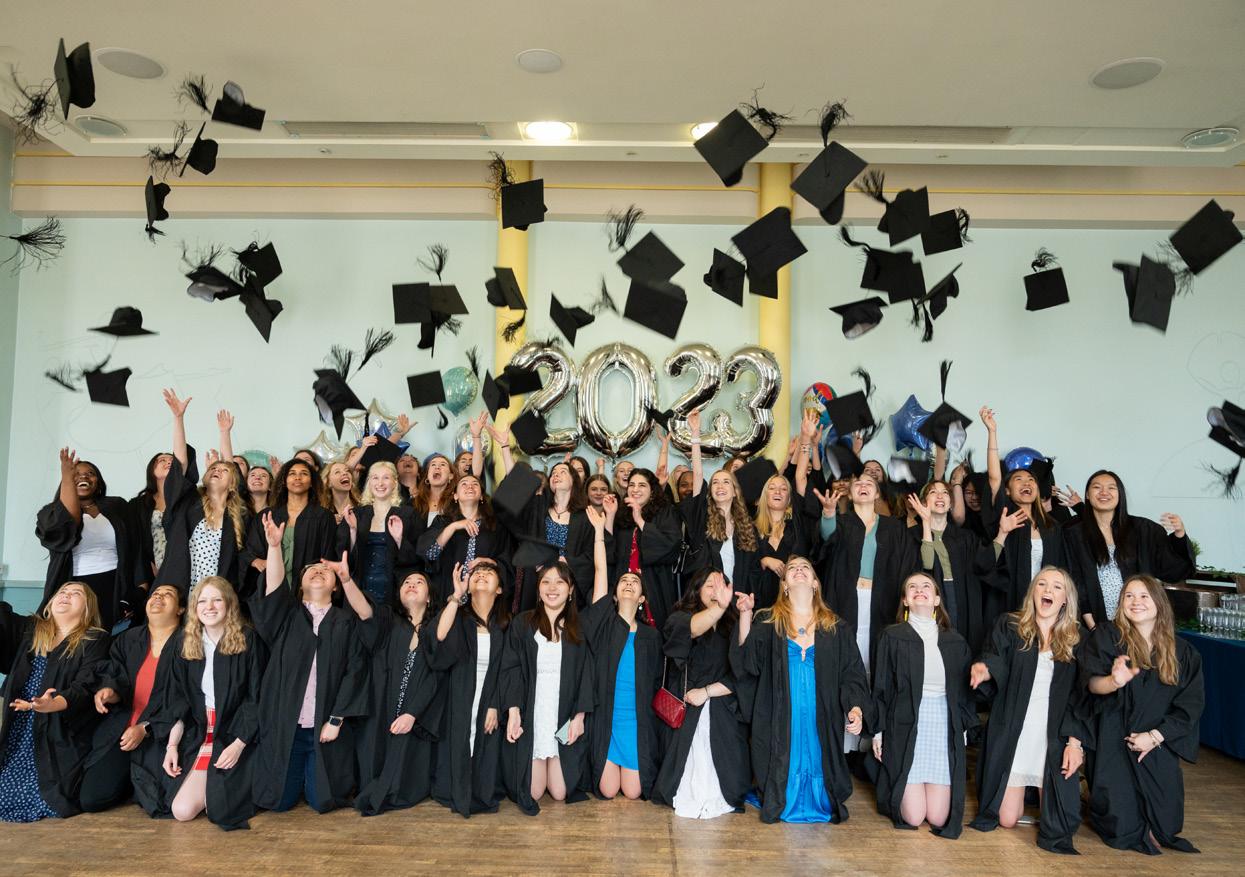
A Level Results and IB Results 2023
IB Diploma Results 2023
This year’s IB and A Level cohort have ridden the storm of an education through Covid without having the chance to take their GCSE exams.
Our IB cohort achieved an average point score of 35 against a global average of 30. This maintains a tradition at RHSB for our IB students to achieve results which are significantly higher than the global IB average, with students securing places at prestigious universities including Kings College London, University College London, Edinburgh and the University of Nottingham.
A Level Results 2023
This year, an impressive 20.5% of grades secured by Royal High School Bath students were the top A* grade, with a quarter of the cohort receiving at least 3 A*/A grades; five students achieved straight A* grades across all their subjects. Given the context that not only are these the first public examinations sat in the traditional way for this Covid-impacted cohort, but also the media coverage warning of a drop of nearly 95,000 A* and A grades compared to last year this is a very pleasing result.
The spirit and individuality of Royal High School Bath students is demonstrated perfectly by the range of destinations and variety of the subjects they are going on to study.
75
Year Grade 7 % Grade 6 % Grade 5 % Average Points 2023 13.51 51.35 75.68 34.8 2022 22.06 58.82 89.7 37.4 2021 56.14 78.07 98.25 40 2020 16.1 69.6 92.9 38.6
Year A*–A % A*–B % A*–C % A*–E % 2023 42.2 65.2 82.6 98.1 2022 66.4 83.6 90.4 100 2021 72.5 87.2 98.3 98.3 2020 61.7 85.1 95.7 100
Destination of Leavers 2023
Aston
Design Engineering
Medicine
Birmingham
Maths
English Lit
Bristol
Biomedical Sciences
Medical Microbiology
Cambridge
English
Cardiff
English Lit Creative Writing
Law
Cardiff Met
Marketing Management
Fashion Marketing Management
Durham
Psychological & Behavioural Science
Anthropology
Liberal Arts
Edinburgh
History & Classics
Exeter
Zoology
Film & TV Studies
Falmouth
Illustration
Heriot-Watt
Engineering
Imperial College London
Physics
Instituto Marangoni
Fashion Business
KCL
International Relations
Liverpool
Physiotherapy
Loughborough
Commercial Management & Quantity Surveying
Manchester Met Business Management
McGill, Canada
International Relations
Nottingham
Classics
Oxford
Chemistry
Oxford Brookes
Primary Teacher Education
Anthropology
Real Estate
Business
Portsmouth
Criminology & Forensic Studies
Reading
Business & Management
Nutrition
Royal Holloway
Psychology
Surrey
Vet Med & Sci
Swansea
Sociology and Social Policy
Applied Medical Sciences
UCL
French & History of Art
History
Economics
University of Hong Kong
Medicine
Warwick
Ancient History & Classical Archaeology
Westminster
Psychology & Counselling Foundation
Writtle University College
Animal Therapy
York
Biomedical Sciences
Psychology
Nursing
Psychology Integrated Masters
76
Notes
77
Notes
78
79
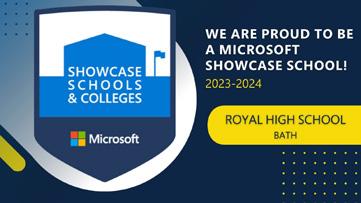
Senior School Lansdown Road, Bath BA1 5SZ royalhigh@rhsb.gdst.net +44 (0)1225 313877 @RoyalHighBath Royal High School Bath www.royalhighbath.gdst.net Girls making their mark.






























































